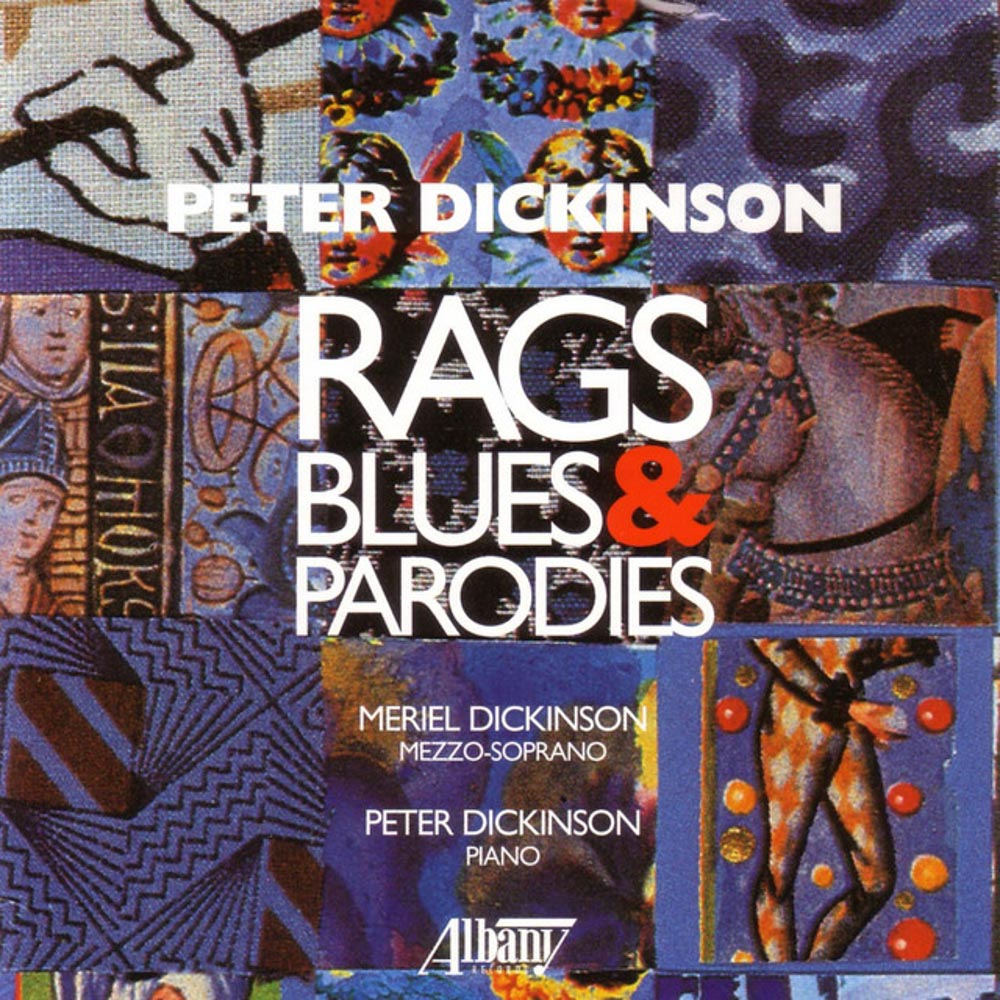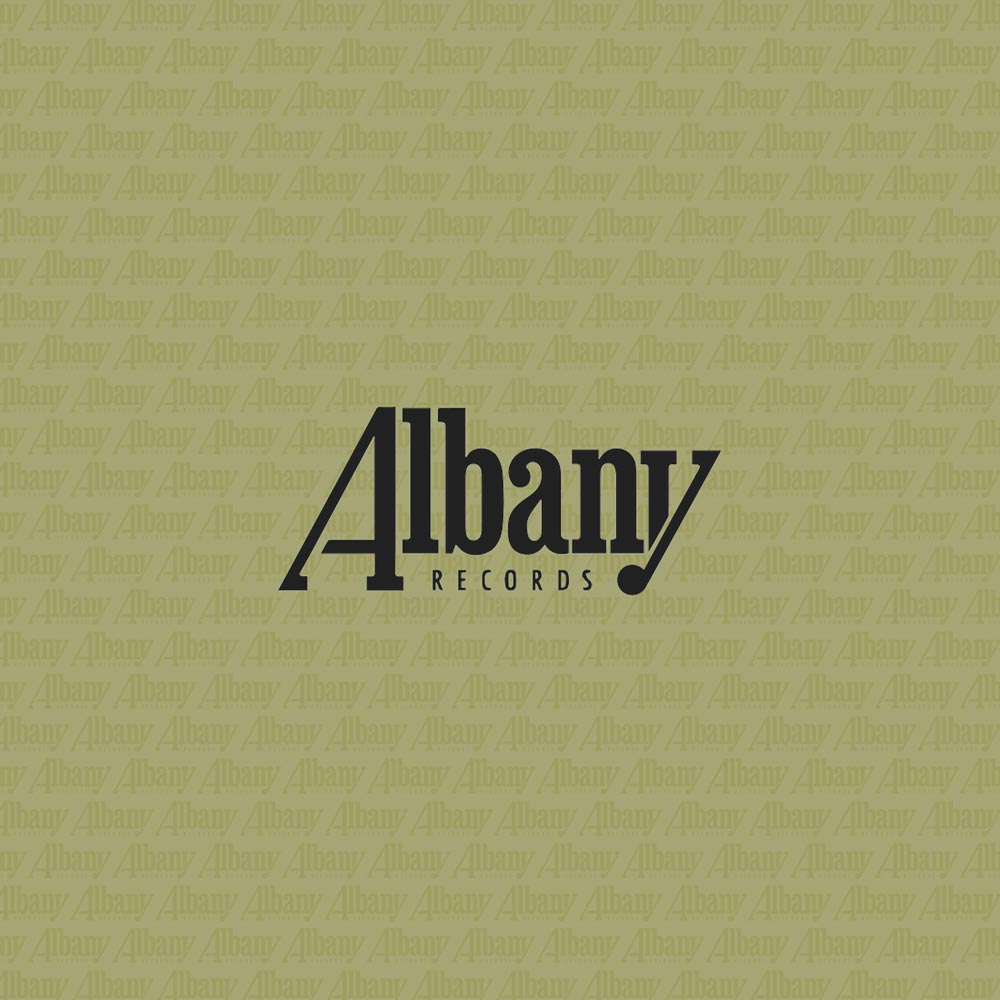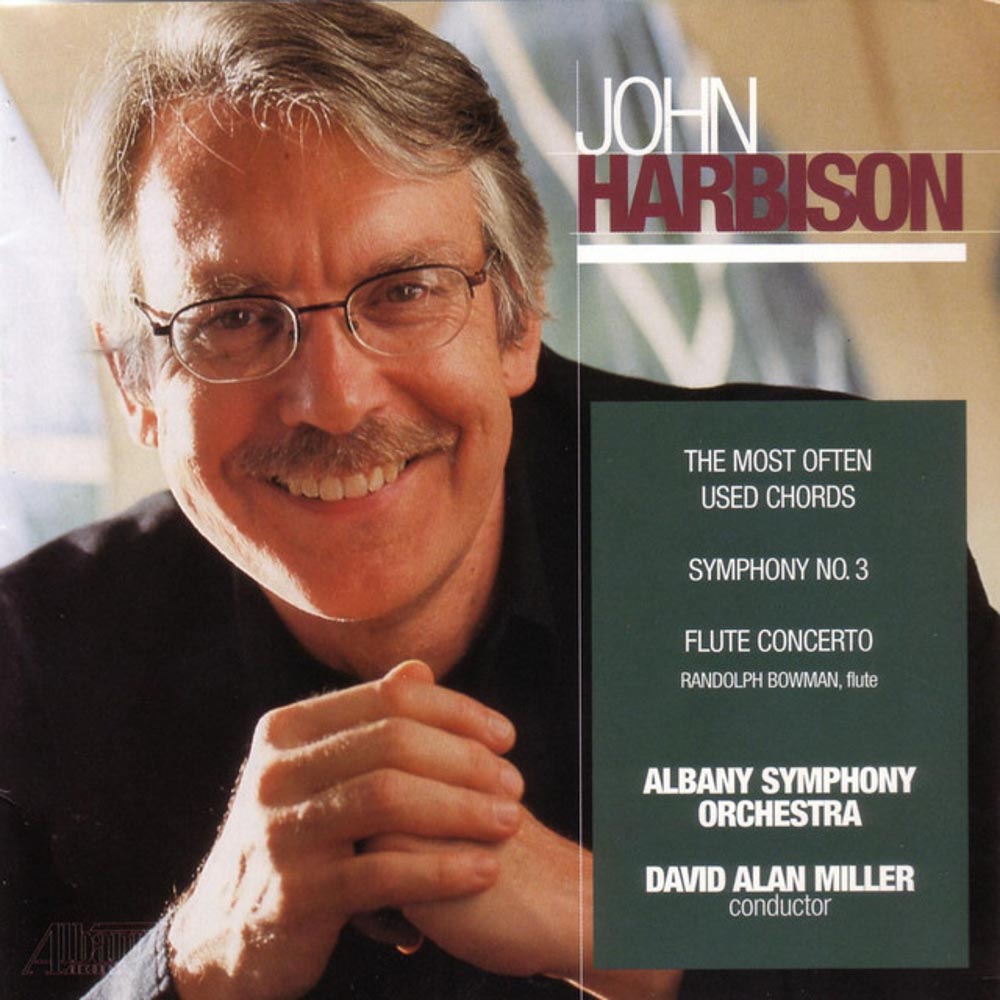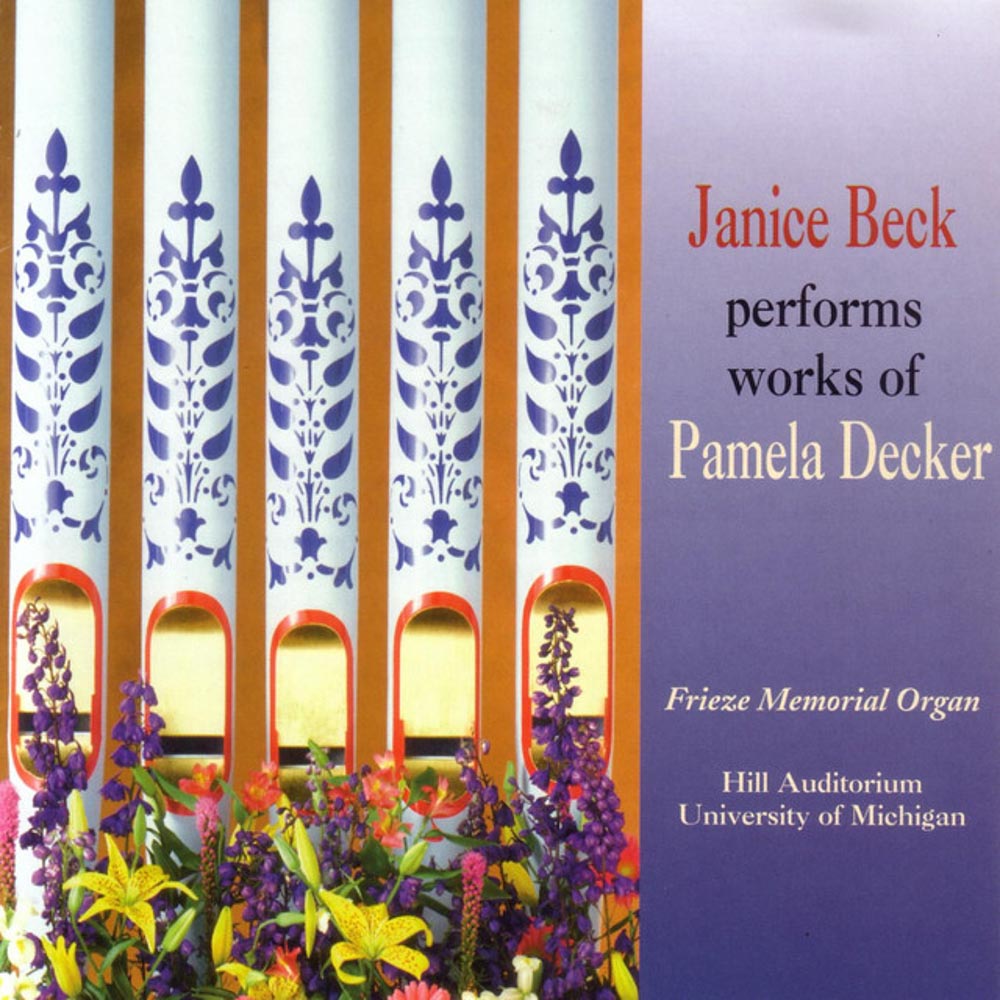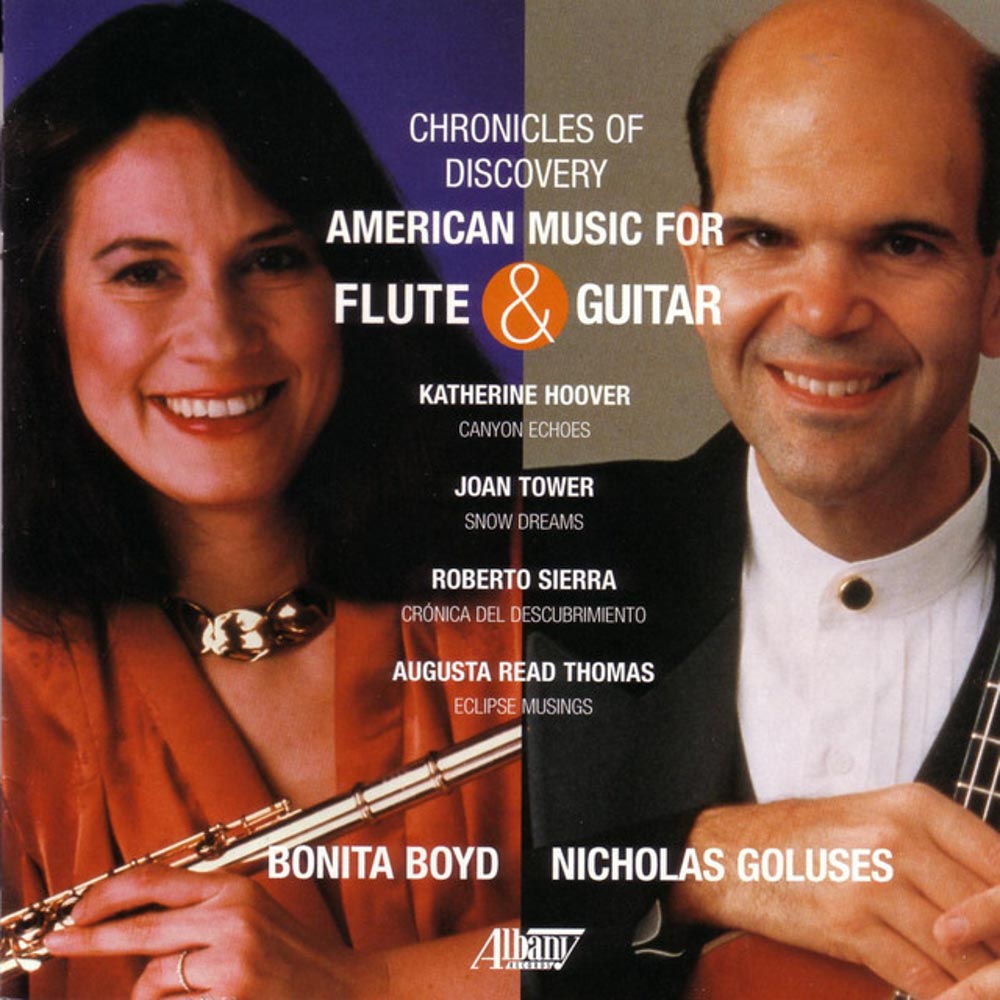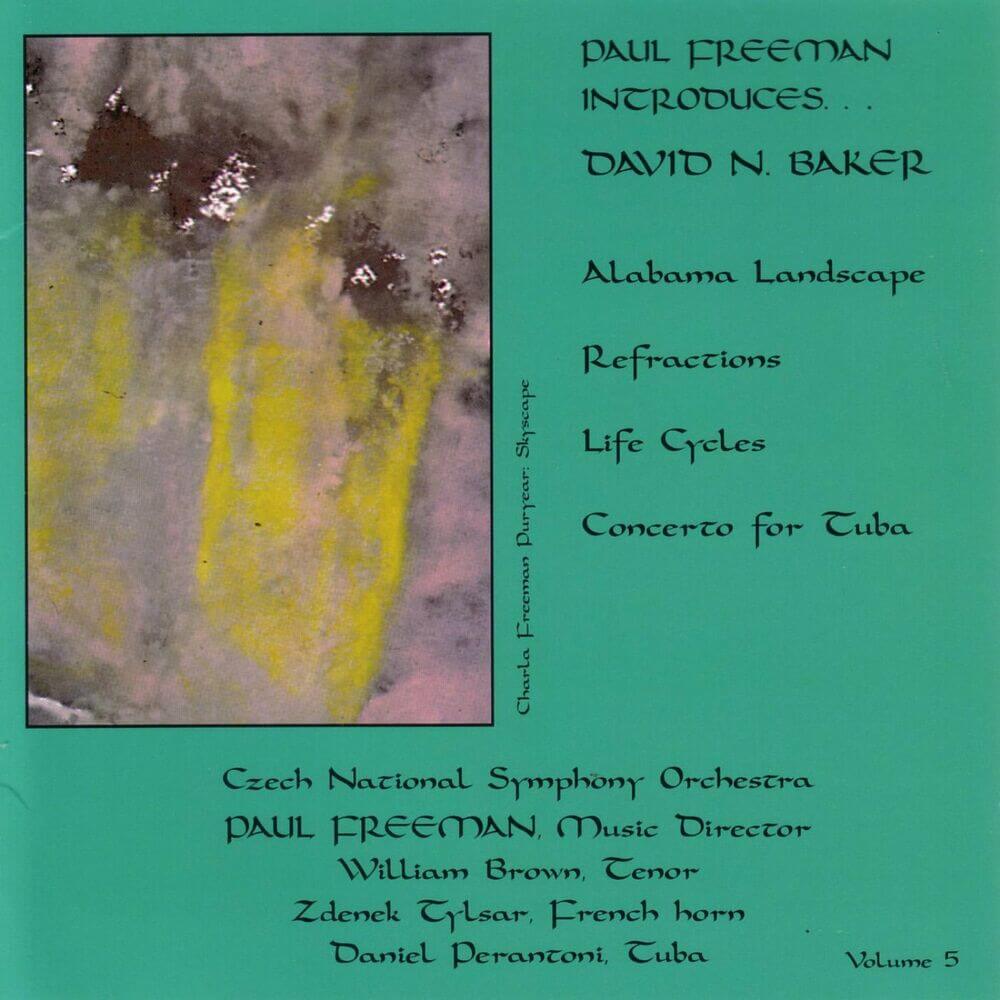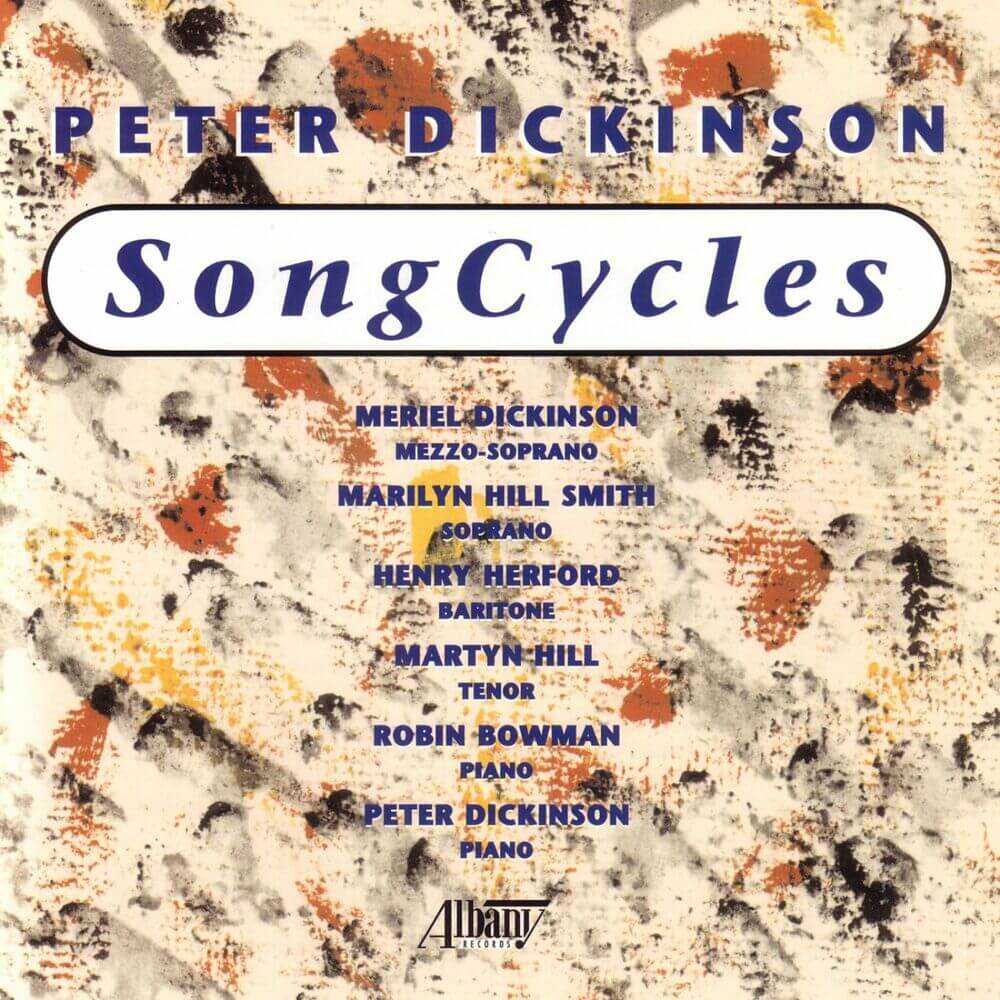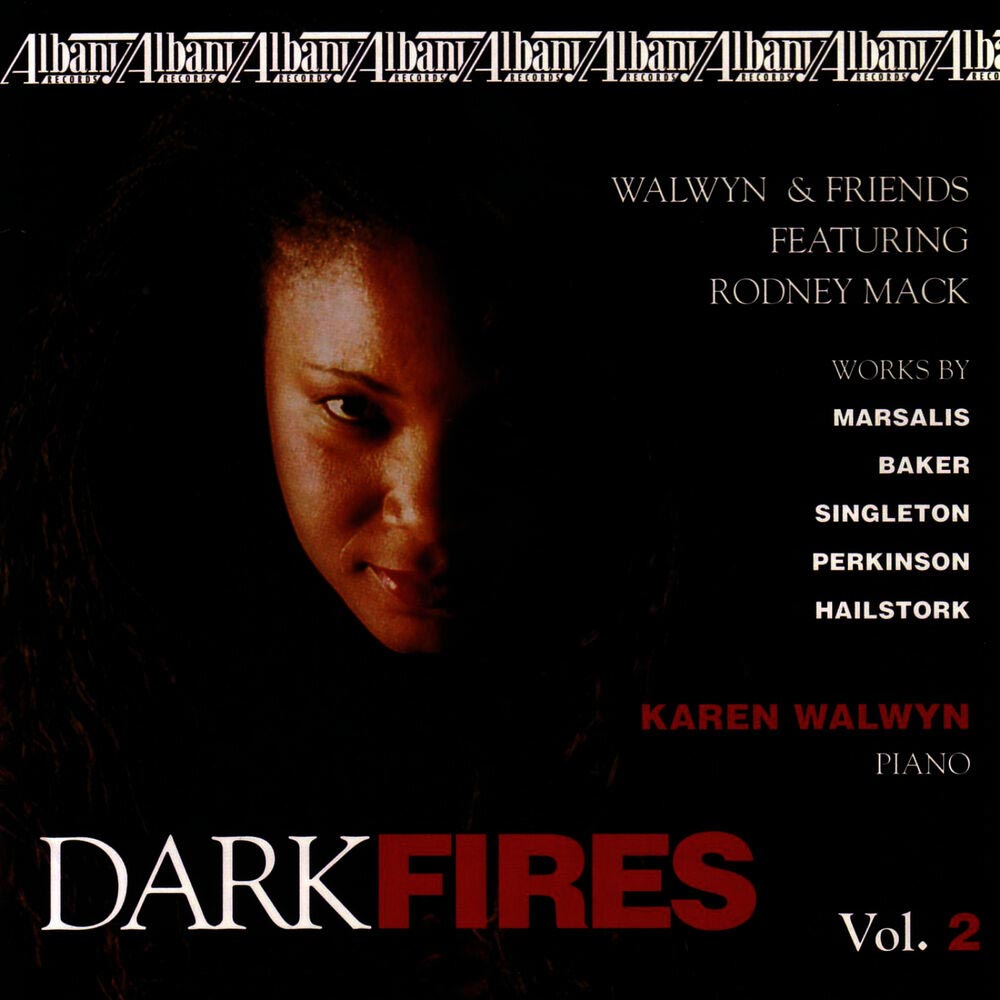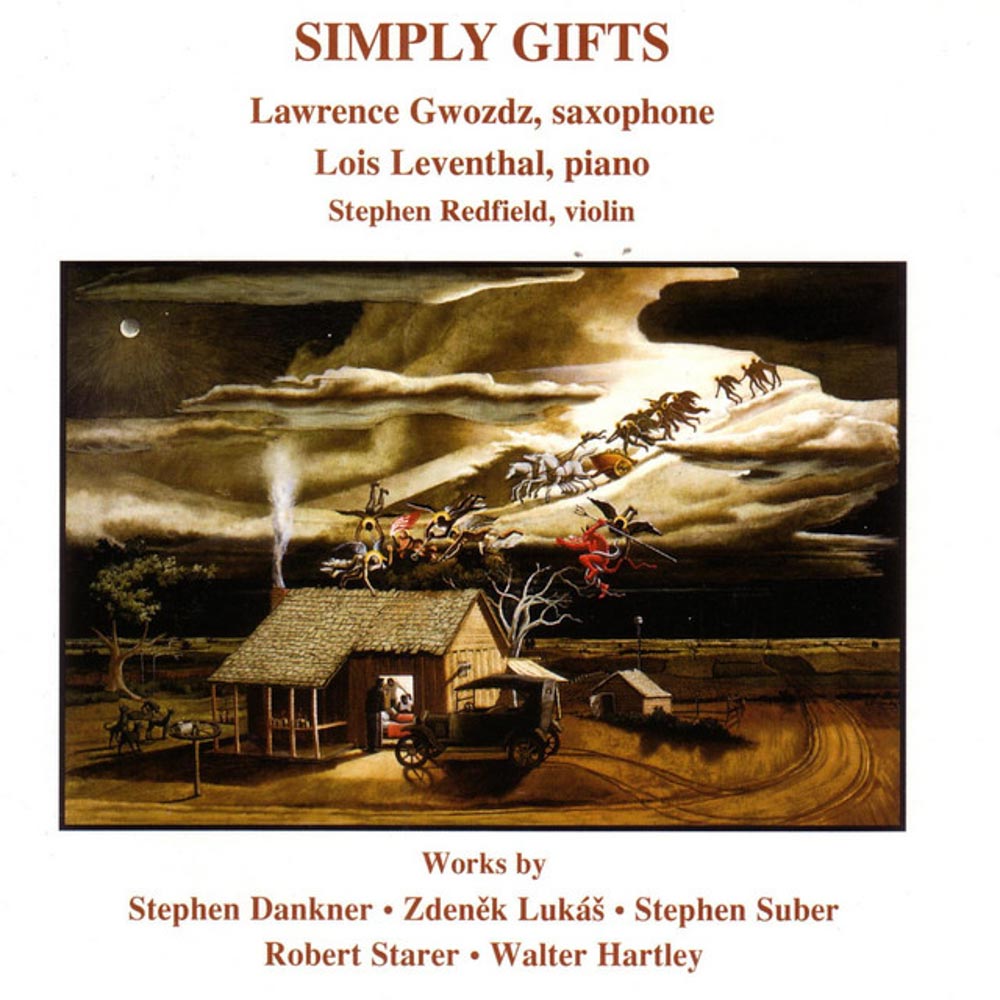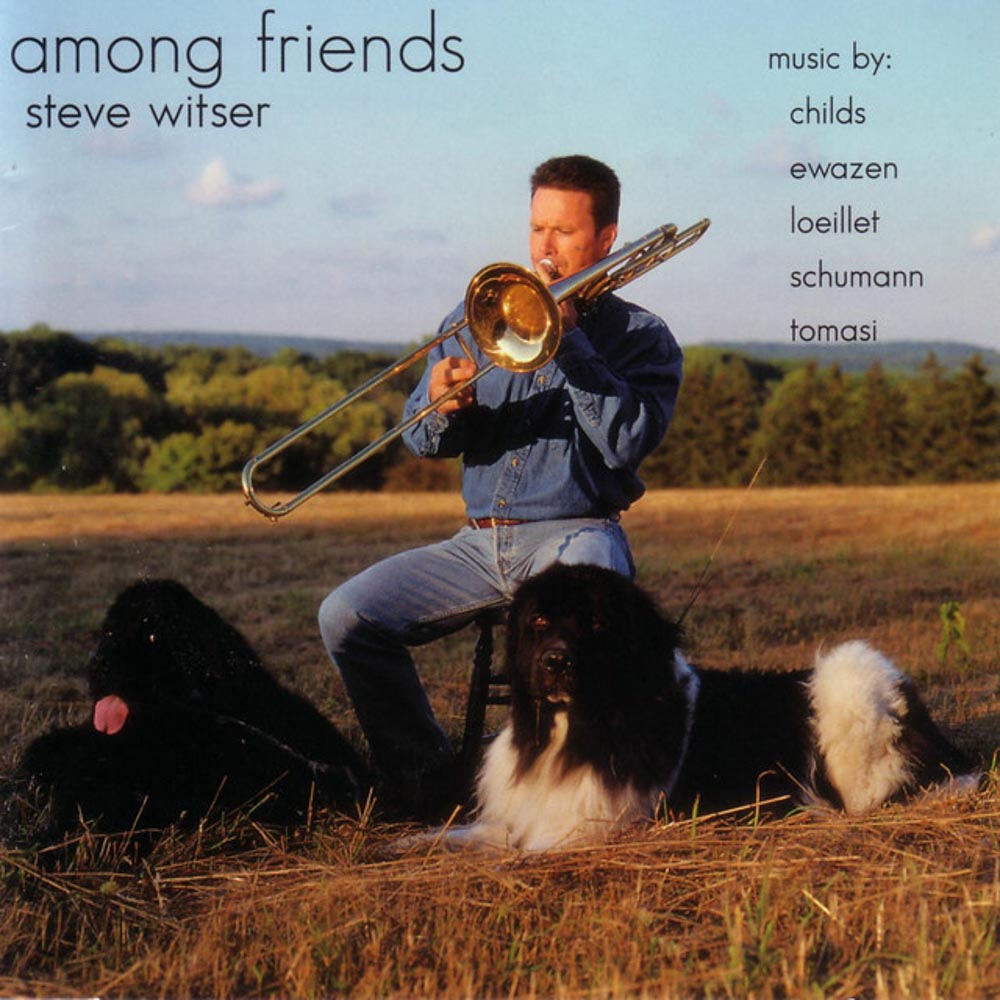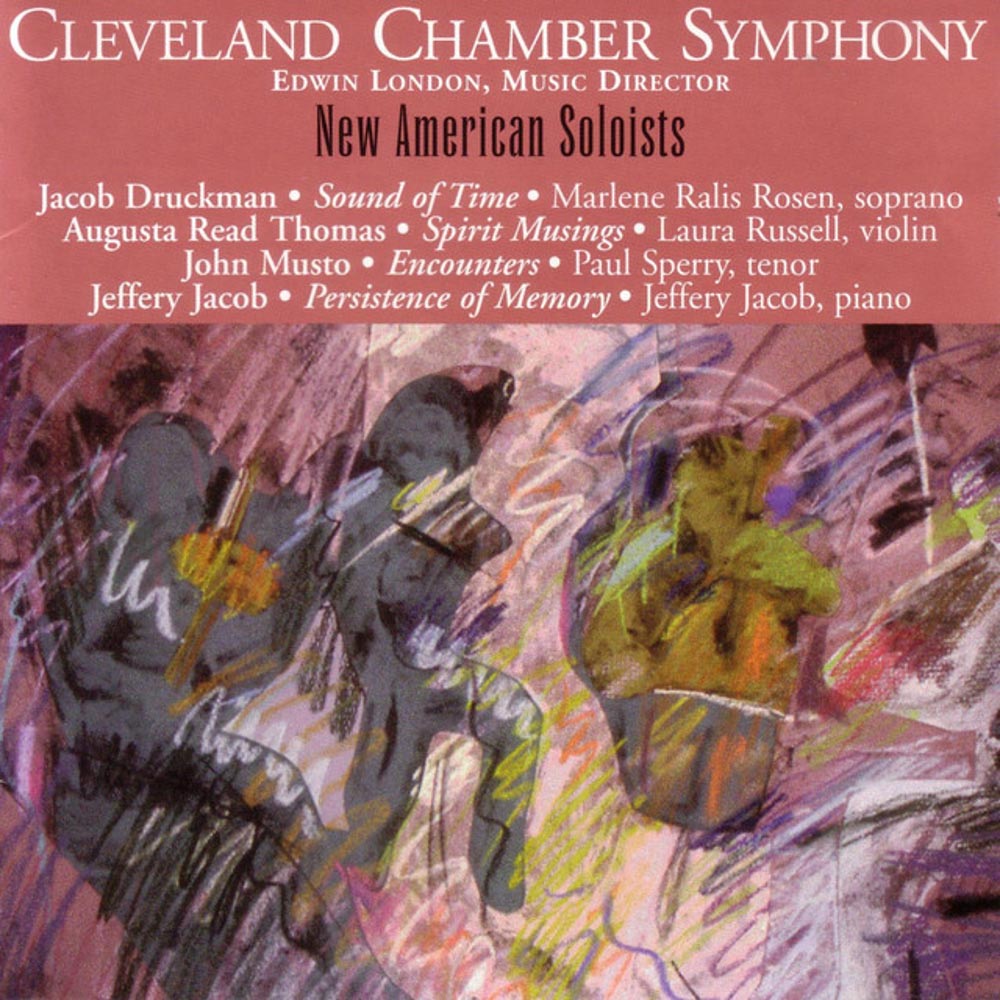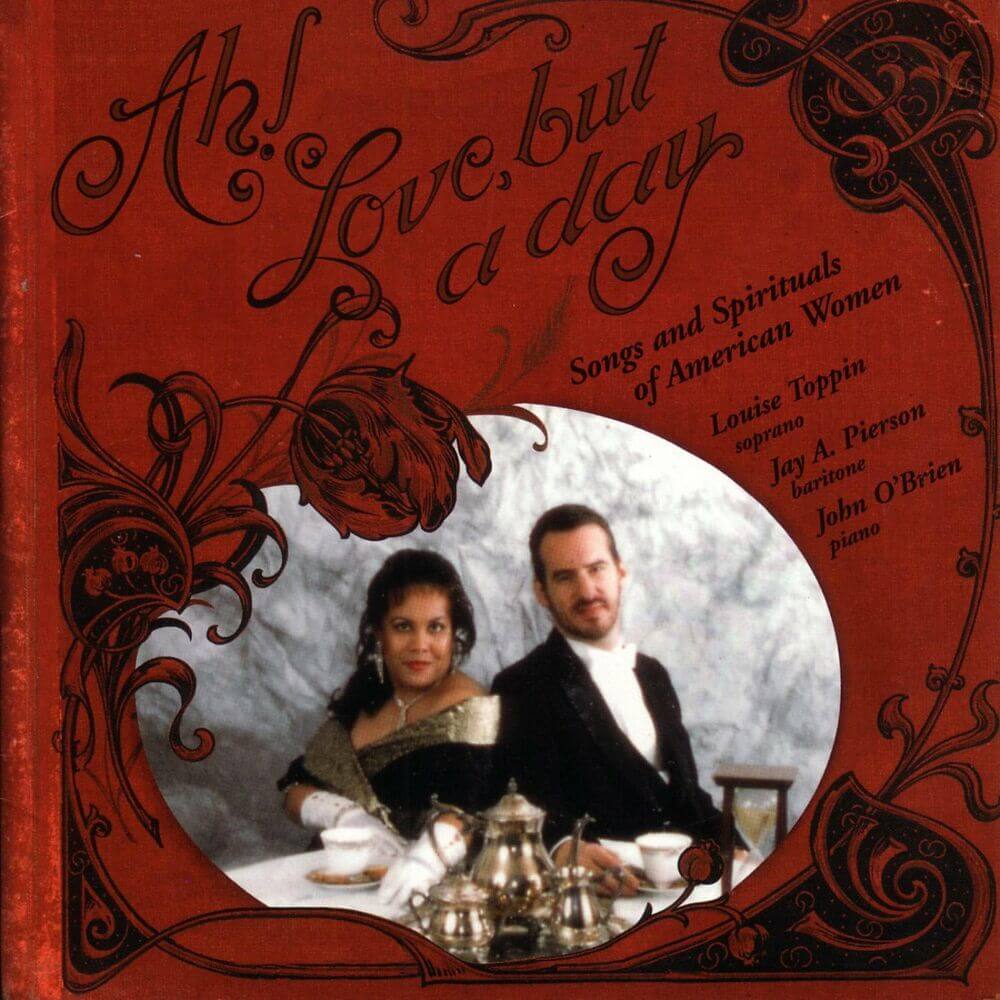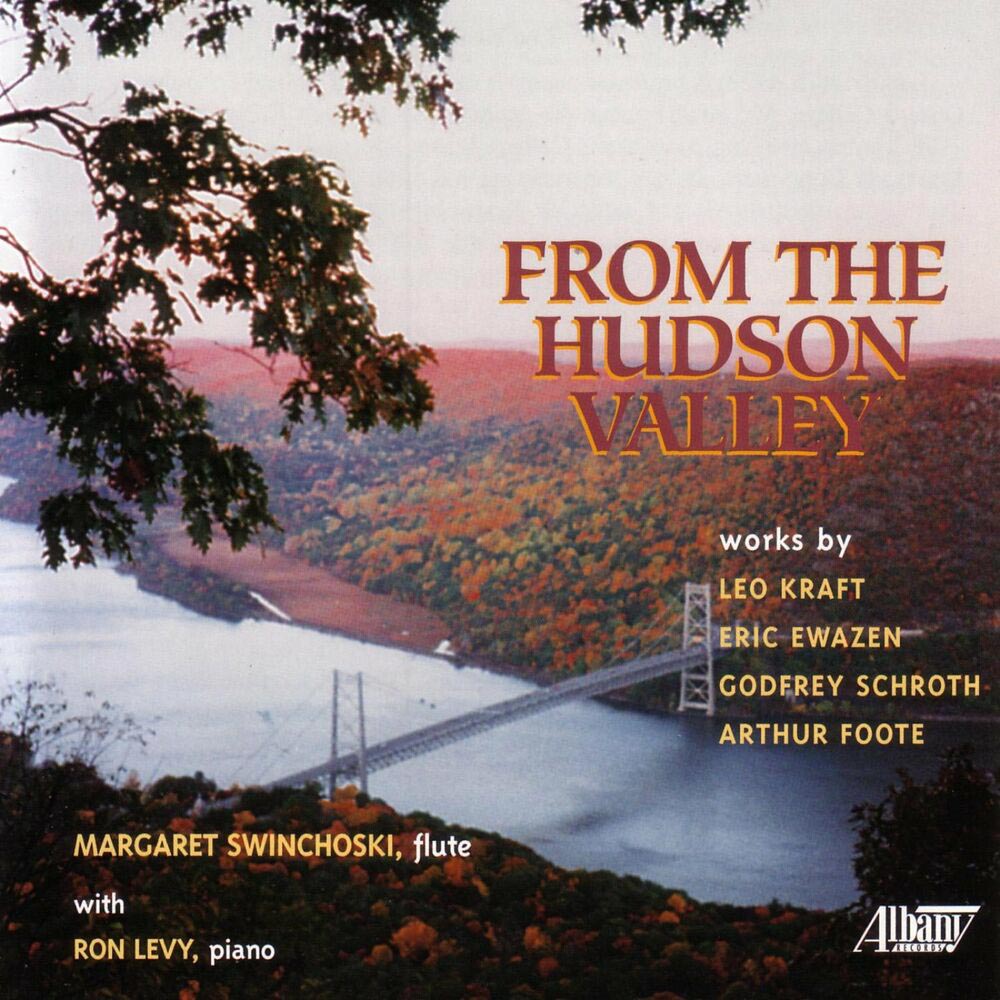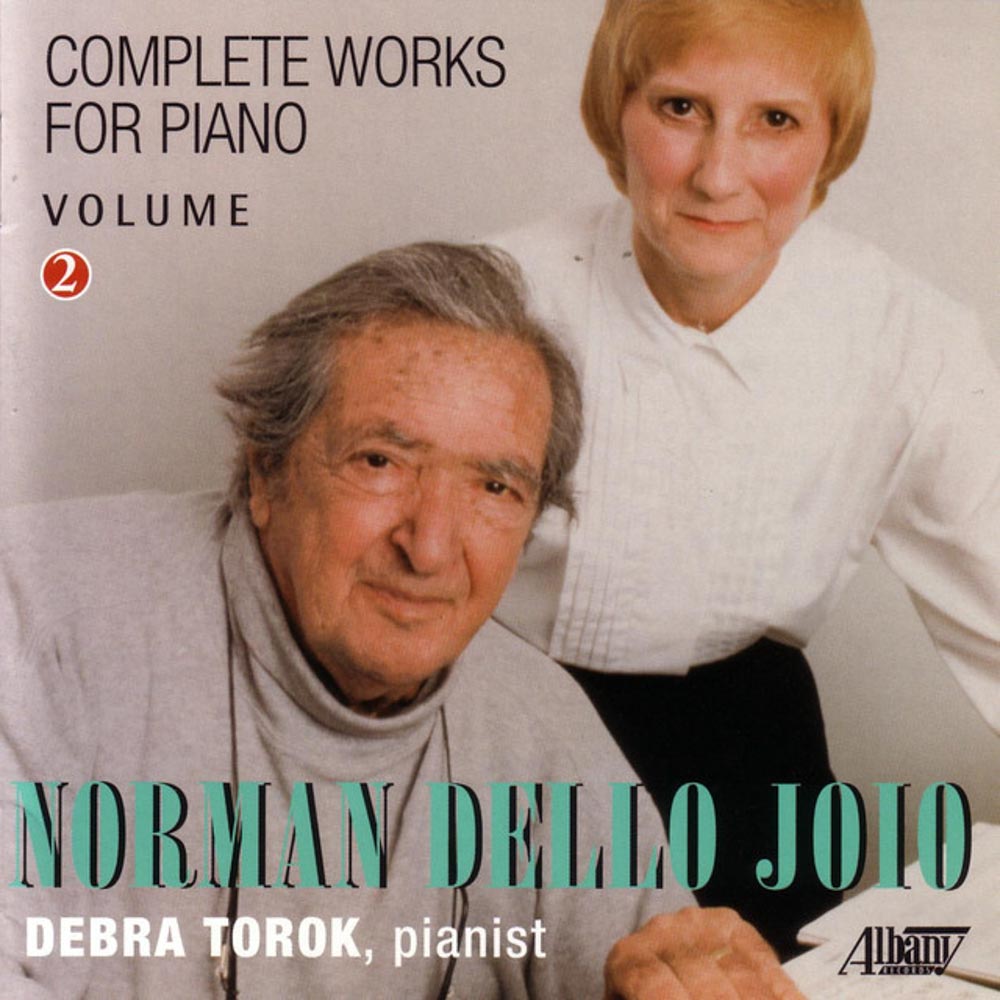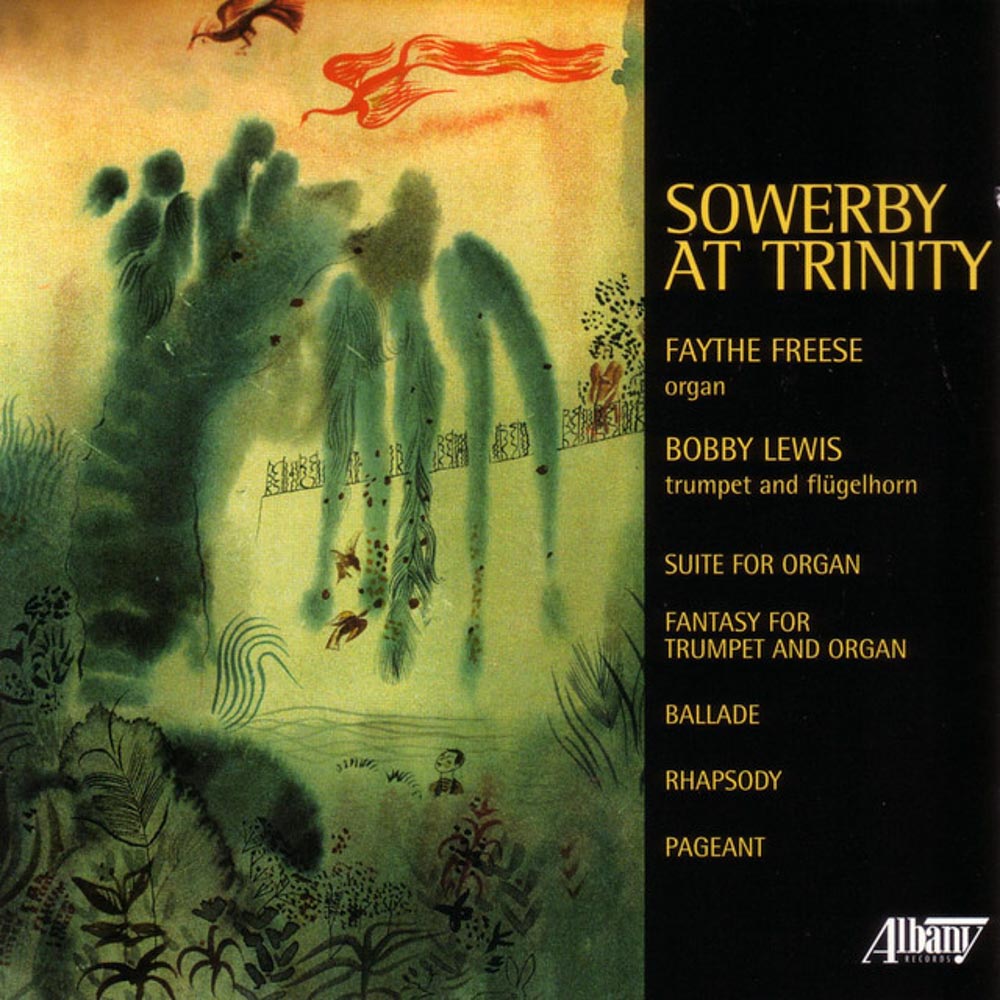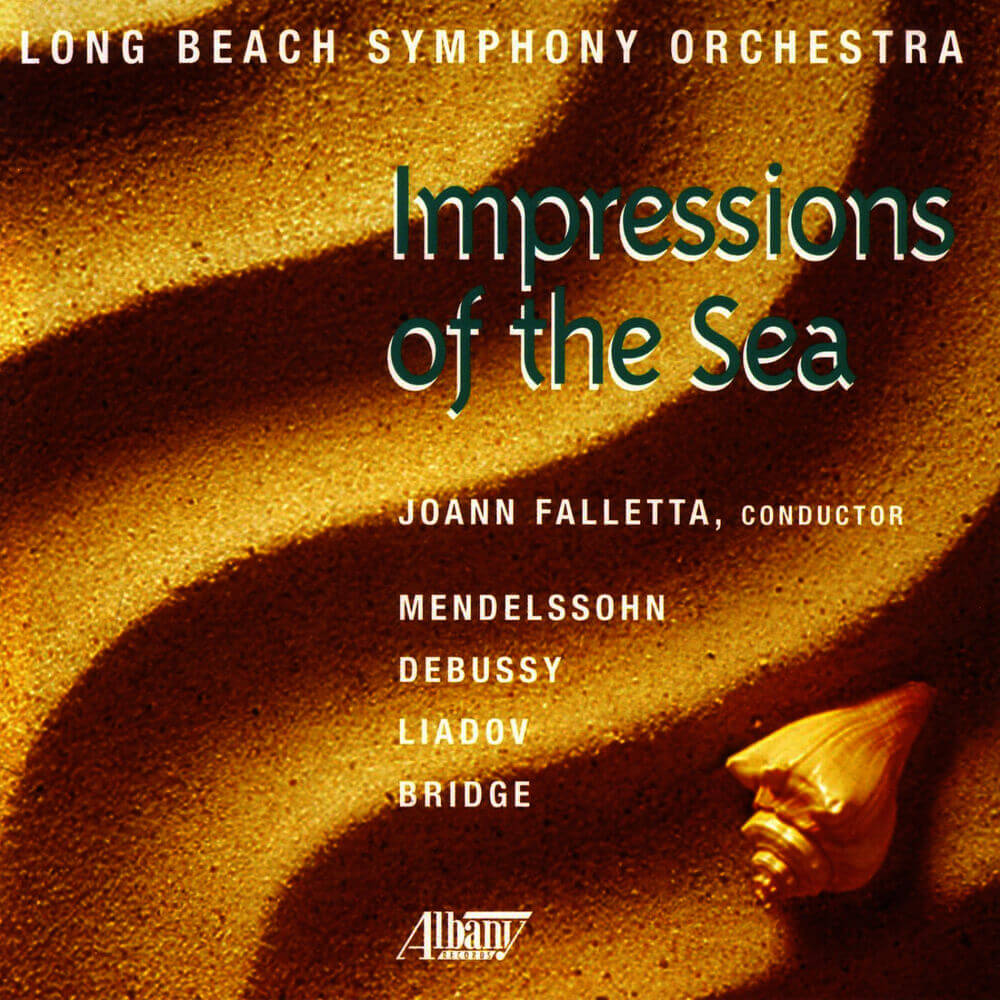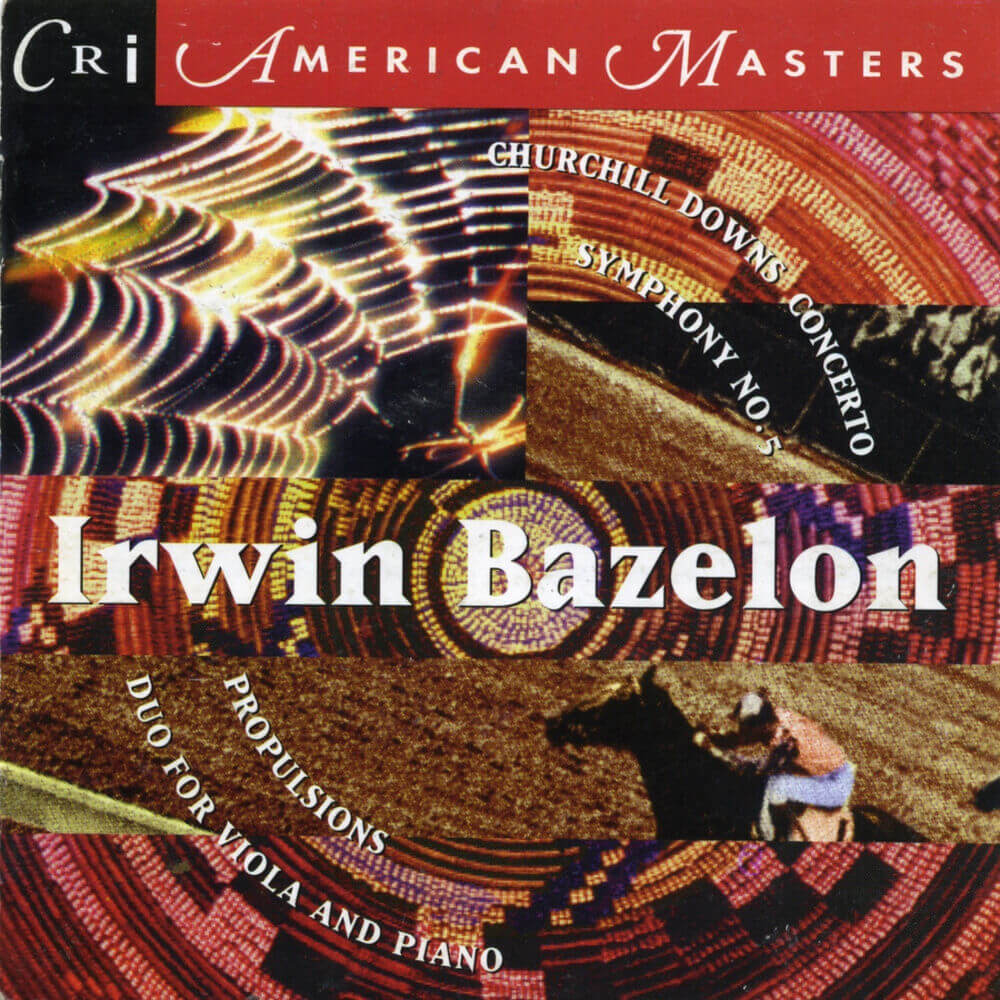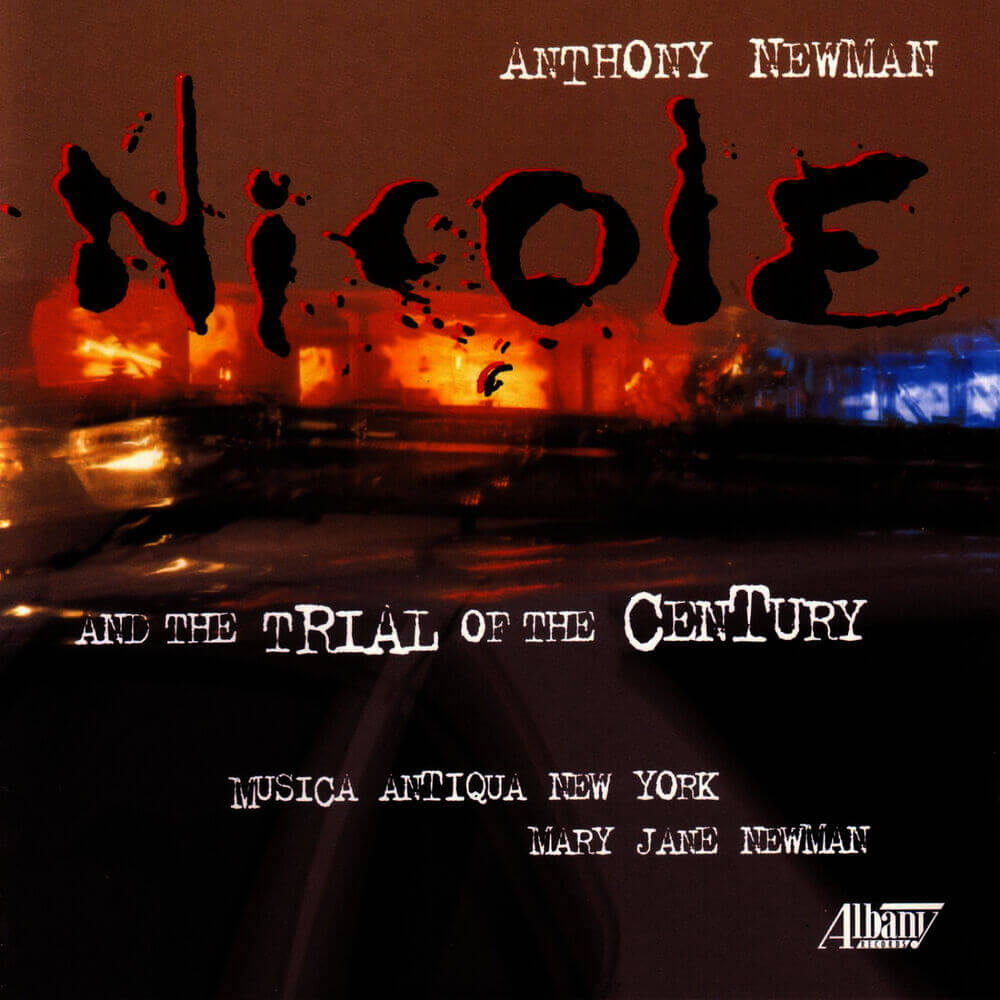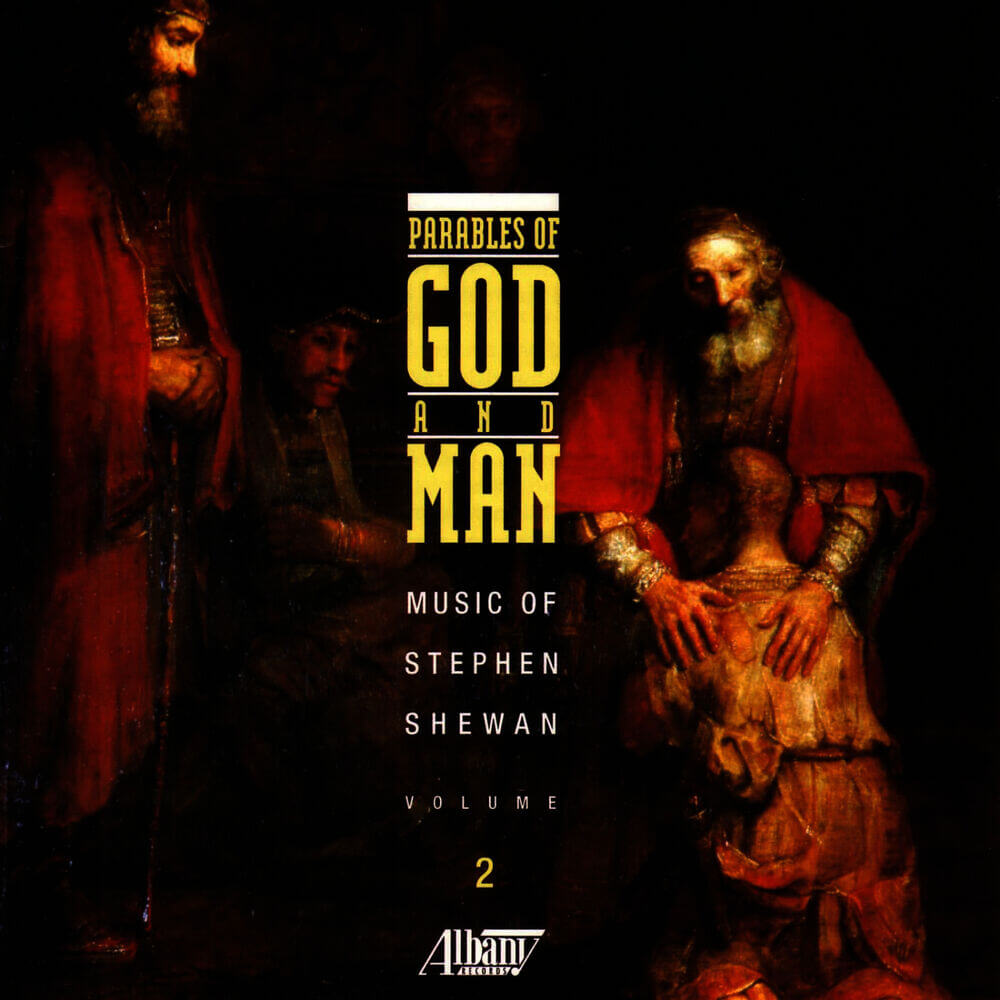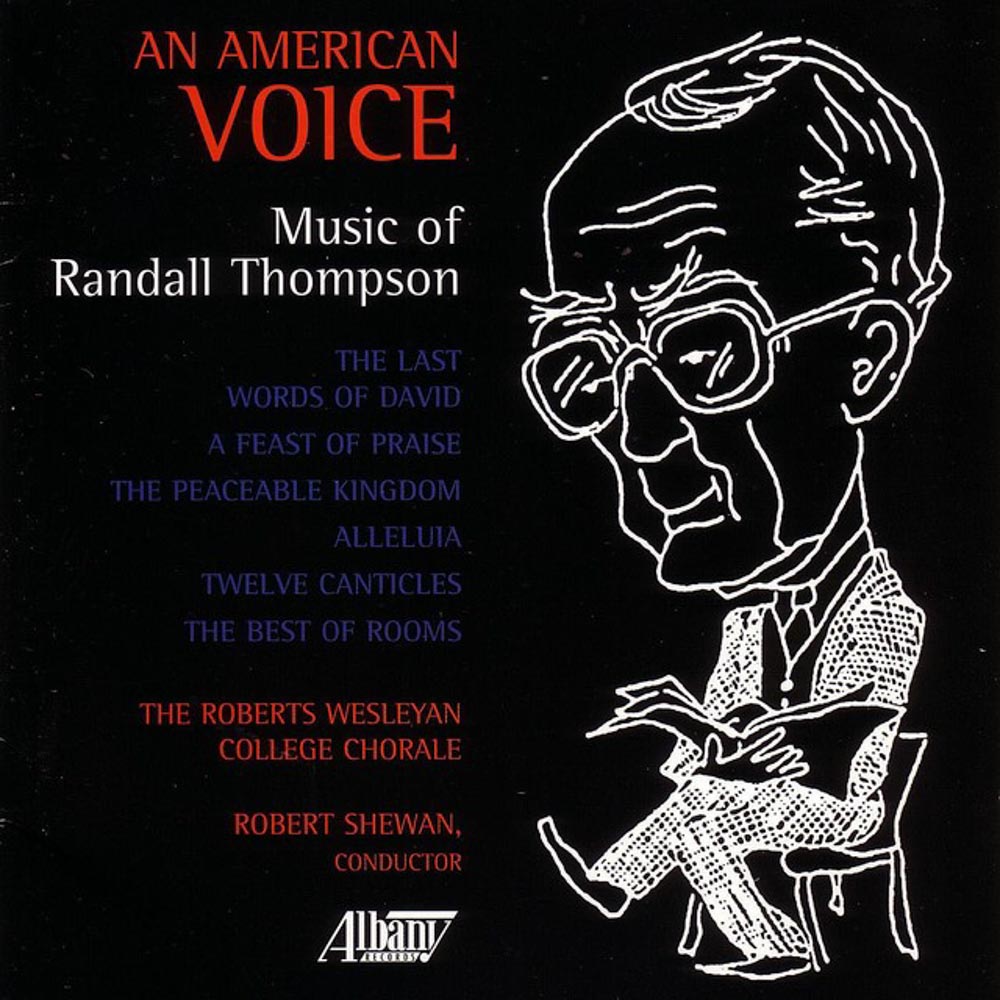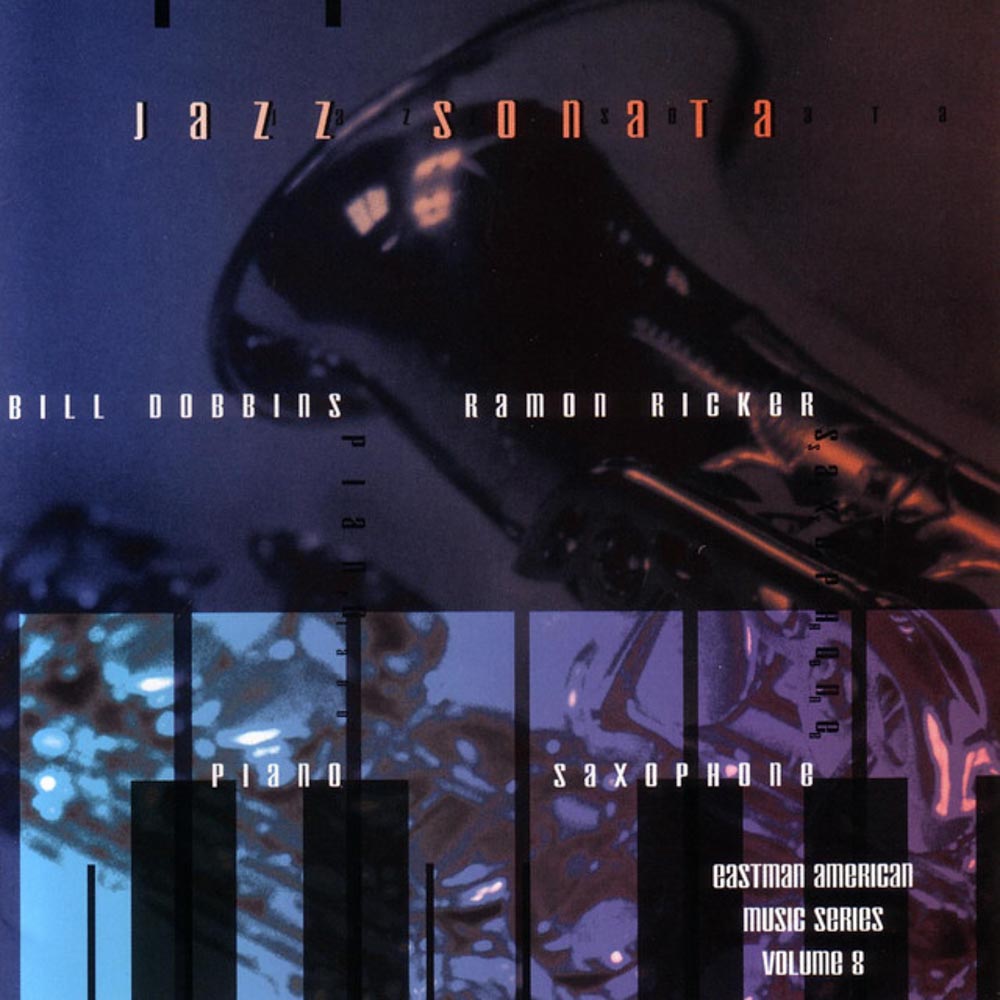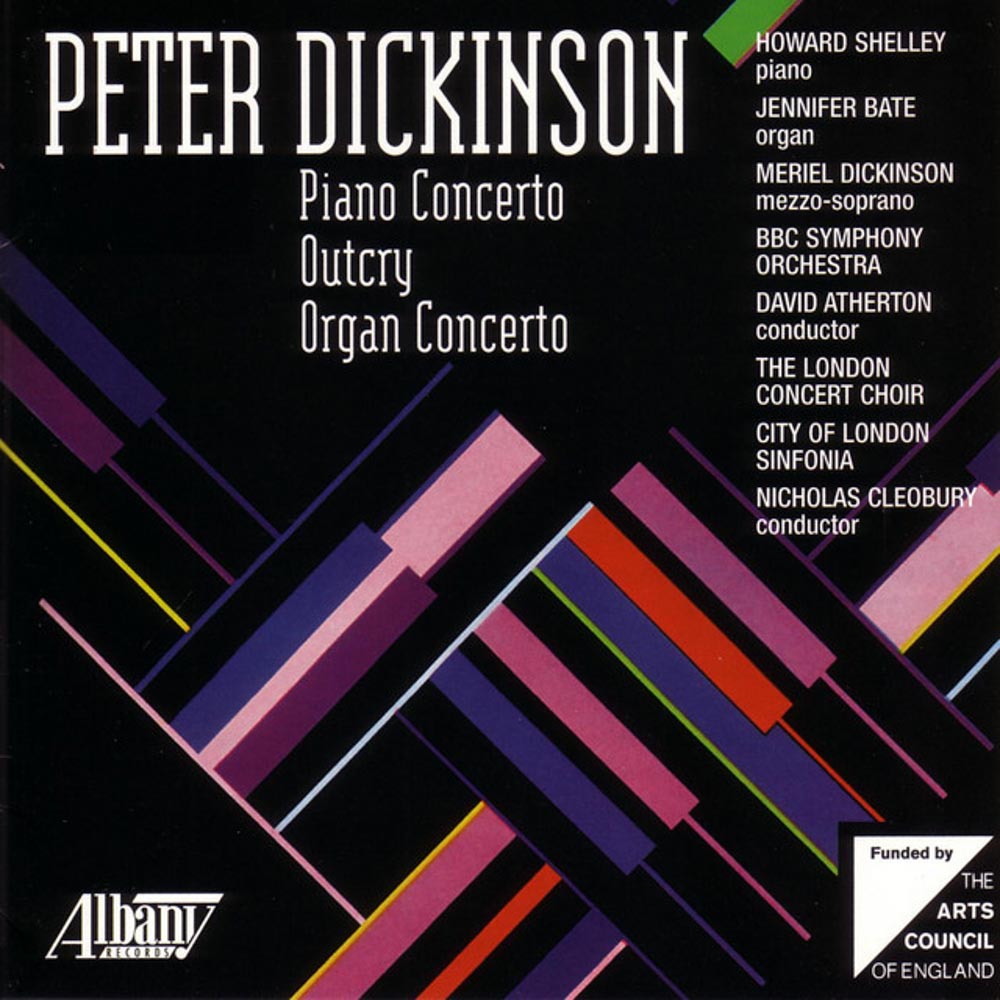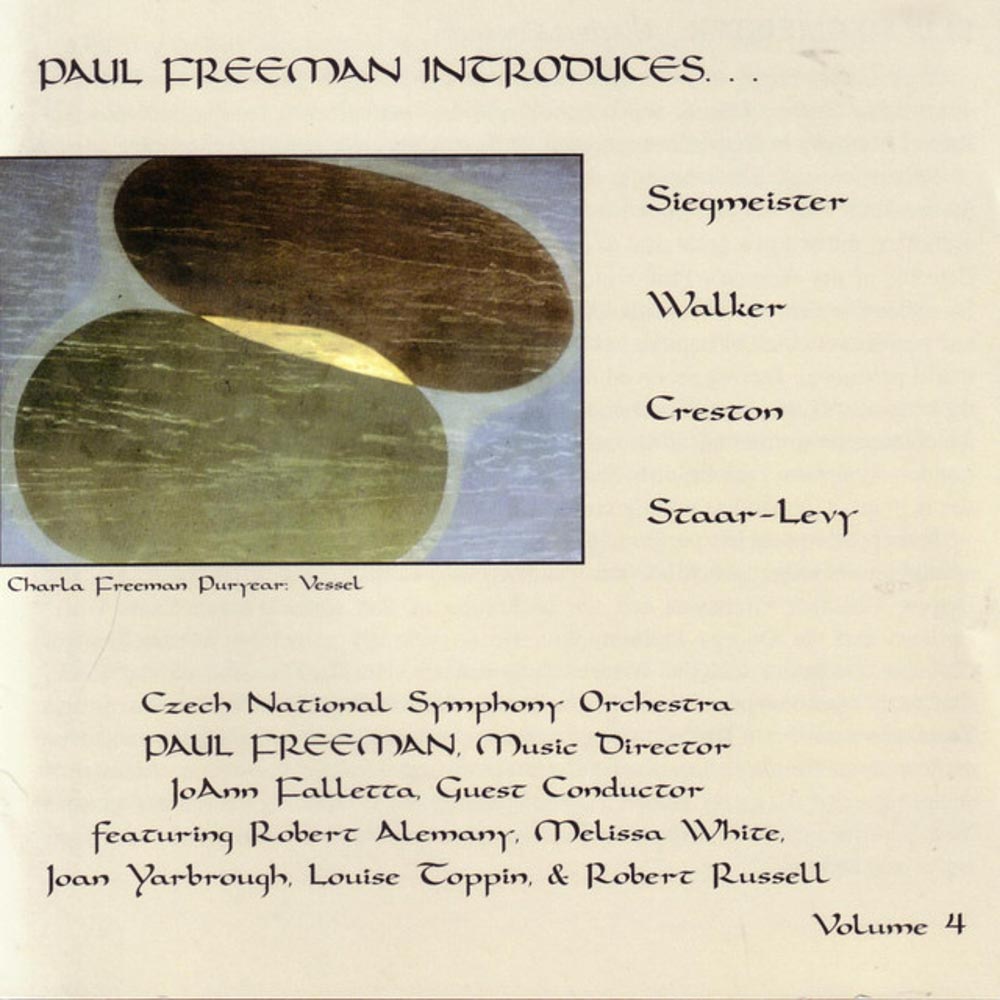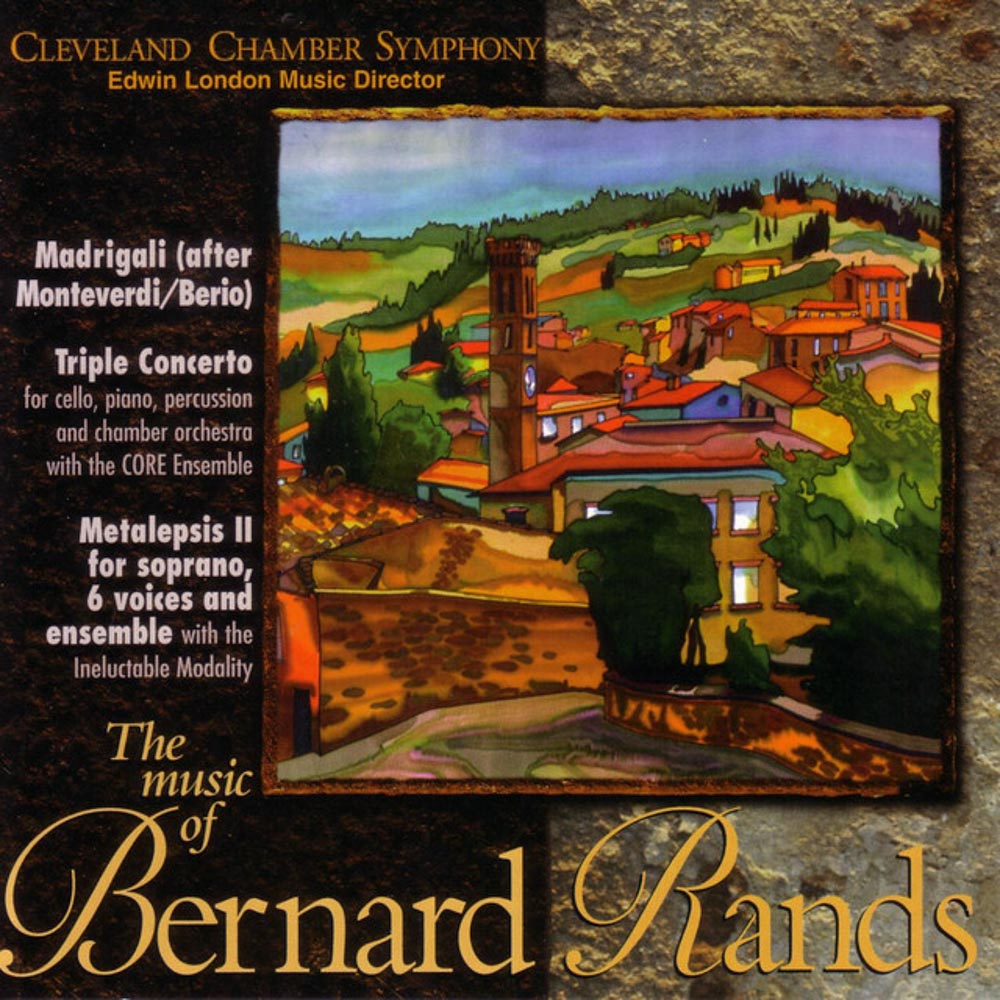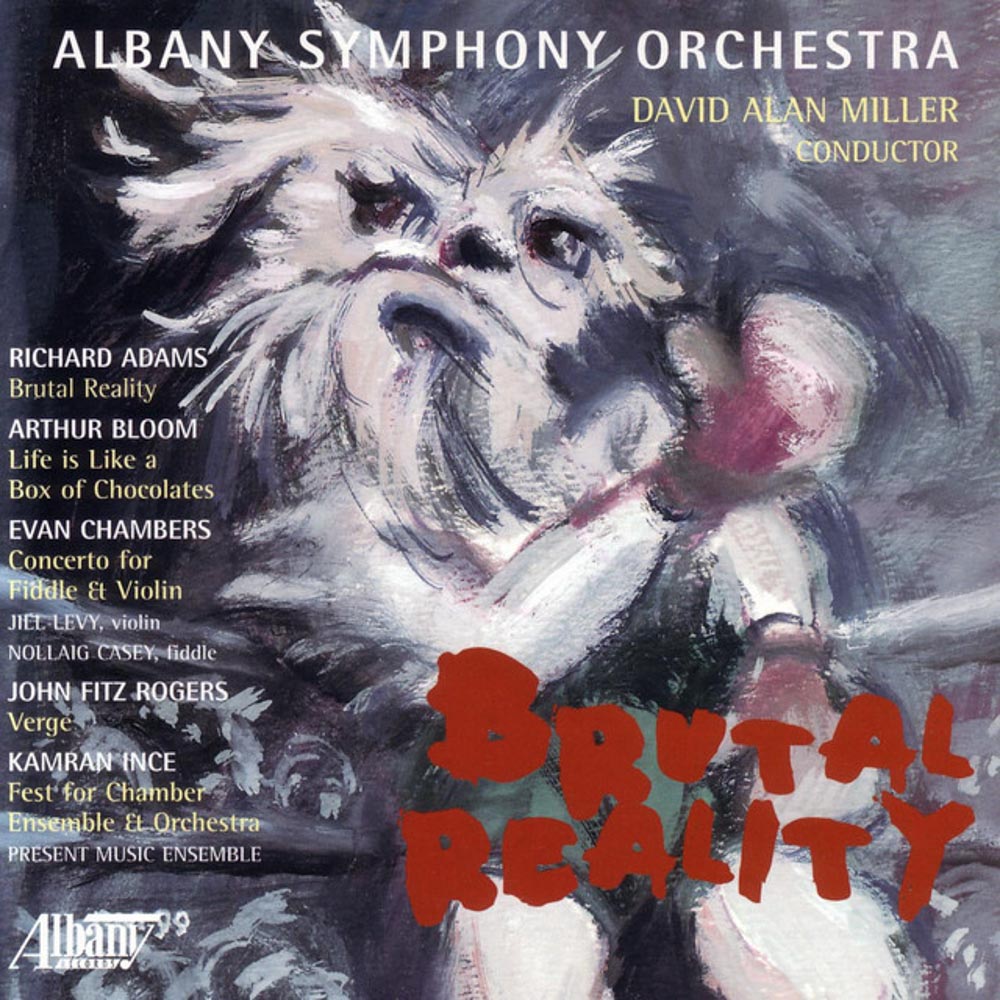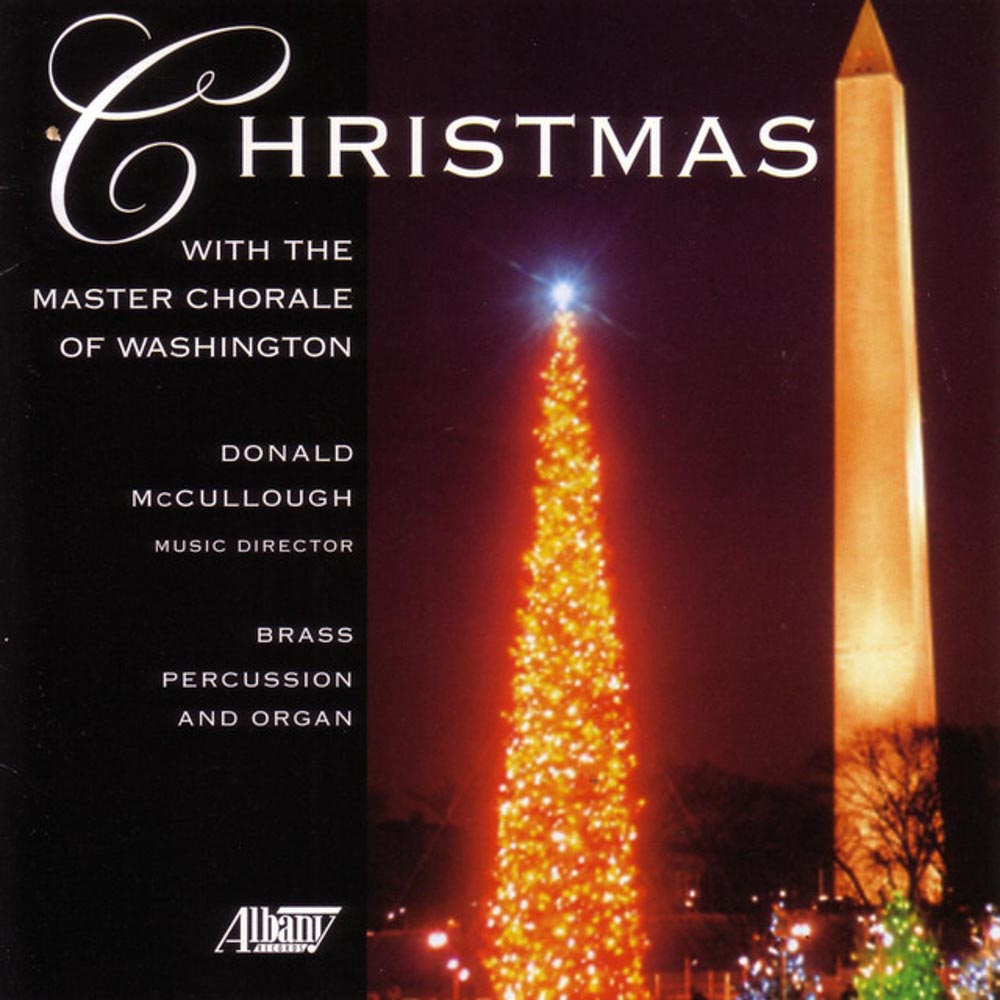Catalog #: TROY0370
Release Date: June 1, 2000OrchestralIt is obvious that Albany Records thinks highly of the music of the late American composer Buddy Bazelon, for other of his compositions appear on TROY54, TROY01, TROY74, TROY82, and TROY63. The Symphony No. 6 was composed in 1969. It was commissioned to celebrate the 100th anniversary of the founding of the Temple B'nai Jehudah in Kansas City, Missouri. The symphony exploits the link between the circumstances of its commission and the music Bazelon had written for the 1968 Jules Dassin feature-film documentary on the Six-Day War, Survival 67. The first performance was given by the Kansas City Philharmonic in November, 1970. Overture to Shakespeare's Taming of the Shrew was composed in 1960. It is based on music written for a production of The Taming of the Shrew by the American Shakespeare Festival Theater in 1957. The Overture already bears the fingerprints of the mature Bazelon style in its colorful orchestration and clearly etched musical profiles. Shakespeare's characters spring off the page and engage the listener in this effervescent and effective musical portrait. The first performance of the work was given by the National Gallery Orchestra conducted by Richard Bales in May, 1964. The Short Symphony was composed in 1961. The numbering Bazelon used for his Symphonies shows that he regarded this as his second symphony. The Short Symphony makes a quantum leap in focusing orchestral forces to create the bristling rhythmic energy that marks all of the composer's later scores. The first performance of the work was given by the National Symphony Orchestra conducted by the composer in December 1962. If you enjoy a big, 20th century, American orchestral sound, then this is a disc you will enjoy.
Catalog #: TROY0369
Release Date: June 1, 2000InstrumentalThere is nothing quite like the British composer Peter Dickinson's witty musical parody, with its humor at various levels. Who else would make a rag and a set of blues out of hymn tunes? Or turn the main themes of his Piano Concerto (TROY160) into a rag, which is actually played during the course of that work on an upright piano at the back of the orchestra? Or make a blues setting of Byron's "So we'll go no more a-roving" using a chord progression from Ravel and turn the whole thing into an Organ Concerto (TROY160)? Or have an offstage pianist piecing together fragments of a piano rag during his String Quartet No. 2 ? Or make a blues version of Edward MacDowell's salon classic, To a Wild Rose, calling it Blue Rose and consequently climaxing on Scriabin's mystic chord? And following this with a Wild Rose Rag? This CD is a collection to be enjoyed: five piano rags, five blues, three reworkings of Satie, two blues songs and two sets of songs, all presented as a complete program in the immediately attractive manner of all Dickinson's recitals, broadcasts and other recordings.
Catalog #: TROY0387
Release Date: May 30, 2000VocalIt is common practice in scholarly circles to honor an individual or institution with a festschrift, a collection of essays or articles written by close associates, former students, colleagues, or those with interests relevant to the life’s work of the honoree. In that spirit, Videmus (the non-profit musical organization devoted to furthering the music of African American composers and artists) offers this CD as a musical celebration of Dr. Willis Patterson’s commanding achievements in performance, education, and administration. If a composer like William Grant Still is considered the “Dean of African-American composers,” then “Dean” Patterson, as he is affectionately known by many, could certainly be considered “Dean” of a long line of distinguished black performer/educators that stretch back at least to the 19th century. His commitment to the music of African-Americans exemplified by the 1977 Anthology of Art Songs by Black Composers fostered the scholarly research and performance of this literature by many artists including those on this recording and Jessye Norman.
Catalog #: TROY0390
Release Date: May 1, 2000OrchestralWithout question John Harbison is one of America's most prominent composers. He has been composer-in-residence with the Pittsburgh Symphony, the Los Angeles Philharmonic, the Tanglewood, Marlboro, Aspen, Ojai, and Santa Fe Festivals, and the American Academy in Rome. He is Institute Professor at the Massachusetts Institute of Technology and has taught at Cal Arts and Boston University, is President of the Copland Fund and serves on the board of directors of the Koussevitsky Foundation. The Most Often Used Chords was composed in 1992 for the Los Angeles Chamber Orchestra which gave it its first performance on October 22, 1993. The Flute Concerto was composed on a commission from the Wallace Foundation and Meet the Composer for Ransom Wilson. It was premiered on October 29, 1995 with Mr. Wilson and the American Composers' Orchestra under Paul Lustig Dunkel. The Symphony No. 3 was commissioned by the Baltimore Symphony Orchestra and is dedicated to the composer Christopher Rouse. Mr. Harbison has been front and center in America's classical music news recently because of the performances by the Met of his new opera The Great Gatsby. Well, this new disc recorded in the Troy Savings Bank Music Hall in magnificent, warm sound, shows a different aspect of the genius of this great American composer.
Catalog #: TROY0381
Release Date: May 1, 2000OrchestralA brand new name to the catalog - wonderful music. Robert Nelson was born in Phoenix and studied at the University of Southern California with Ingolf Dahl and Halsey Stevens. He is currently a Professor of Music Theory and Composition at the University of Houston Moores School of Music. He has long been interested in theatrical music, as both a composer and coach/conductor. This meshes with a life-long interest in the widest range of musical idioms - from the most avant-garde contemporary effects to current jazz and popular styles. Writing for the theater has allowed him to explore all these various idioms and employ whichever were most appropriate to the project at hand. His theatrical experience has included a long involvement as composer for the extraordinary mime troupe of the University of Houston School of Theater.
Catalog #: TROY0375-76
Release Date: May 1, 2000OperaSince its first appearance in 1975, Zhurbin's rock opera Orpheus and Eurydice has been the focus of enormous interest and attention. The reaction from the Soviet Communist Press and the official propaganda "apparatchiks" was negative and even scandalous. Somehow the work managed to survive all this - mostly because general audiences disregarded the "directives" from the Central Committee. There is an old Russian proverb which goes "people vote with their feet," which means the audience either comes to the performance or it doesn't. In the case of Orpheus the response was incredible. In some cities it was performed twice in one day, two weeks in a row at the sports arena with six to seven thousand tickets sold at every performance. One group gave it 2500 performances all over the Soviet Union and Europe. This two CD set is a remastering of the original cast album made in 1977 by the St. Petersburg Theater Rock Opera Group. About the Two Portraits, the composer writes: "My love for the great poetry of the two Russian poets from the first half of the 20th century - Marina Tsvetayeva and Velemir Khlebnikov - inspired me to write this music in an attempt to create some kind of "Musical Portraits." This set should have broad appeal to a wide group of listeners. It is really a "crossover" album.
Catalog #: TROY0386
Release Date: April 1, 2000ChoralThe custom of teaching Bible stories by means of sacred drama is an old and venerable one. Angels follows this tradition. Working with librettist John Vorrasi, William Ferris has created a striking portrait of the Archangels Michael, Uriel, Gabriel and Raphael. During the summer of 1988 William Ferris was commissioned by Keynote Arts Associates of New York to write a short work for a chorus and orchestra of young performers. The only condition stipulated was that the orchestra be "Classical" in its layout and size so that the text could be clearly articulated and readily understood and enjoyed by listeners. "I was irresistibly drawn to the delightful Modern Music text by the 18th century American William Billings" writes composer Ferris. "The words are a composer's dream. The energy, color and rhythmic vitality of the text as well as the endless opportunities it provided for word-painting with vocal, harmonic and orchestral effects made it a sheer joy to set to music. The form of my composition is easy to grasp and follows text in all of its leaps, bounds and commands!" Ferris is the first American composer to teach at the Vatican. His Holiness Pope John Paul II conferred a Papal knighthood upon him in 1989 and Radio Vatican broadcast a concert of his music worldwide. In 1971 he founded the William Ferris Chorale, an ensemble dedicated to celebrating music of the 20th century. For seven years he was organist of Chicago's Holy Name Cathedral. During Fulton J. Sheen's episcopacy as Bishop of Rochester, New York, Ferris was organist and choirmaster at Sacred Heart Cathedral. Sir William Walton said: "What a splendid chorus the Chorale is. How lustily they sang. It is really first class!"
Catalog #: TROY0383
Release Date: April 1, 2000OrganPamela Decker is Assistant Professor of Organ/Music Theory at the University of Arizona in Tucson. She is also organist at Christ Church United Methodist Church in Tucson. She has been active as a performer since the age of 13. She was educated at Stanford University. She has won numerous prizes and scholarships for both performance and composition. Ms. Decker is Assistant Professor of Organ/Music Theory at the University of Arizona in Tucson. Flores del Desierto was written as a set of three concert tangos for organ in honor of Astor Piazzolla who has attained legendary status for his risk-taking development of the Argentine tango. Retablos is a cycle of works based upon Gregorian chant themes: a triptych of pieces that are intended to be as independent as they are interrelated. The term retablo refers to a painted altar screen in a church. The three pieces are based on the following chants: Pange lingua, Ubi caritas and Victimae paschali. One of America's premiere organists, Janice Beck has presented recitals in many prestigious venues in North America and Europe. During a Fulbright Scholarship in Paris she studied with Jean Langlais and Nadia Boulanger.
Catalog #: TROY0379
Release Date: April 1, 2000ChamberAbout her piece Canyon Echoes composer, conductor and flutist Katherine Hoover writes: "This piece was inspired by a book called 'The Flute Player,' a simply and beautifully illustrated retelling of an Apache folk tale by Michael Lapaca." Joan Tower is the composer-in-residence with the Orchestra of St. Lukes. "In my piece Snow Dreams there are many different images of snow, its forms and its movements: light snow flakes, pockets of swirls of snow, rounded drifts, long white plains of blankets of snow, light and heavy snowfalls, etc. Many of these images can be found in the piece, if in fact, they need to be found at all. The listener will determine that choice." Roberto Sierra is Professor of Composition at Cornell University. "These six pieces for flute and guitar are a series of chronicles (cronica in Spanish) that I composed on the subject of the meeting between the aboriginal Indian culture of the Caribbean Islands and the Spanish Conquistadors." Augusta Thomas writes: "Music of all kinds constantly amazes, surprises, propels and seduces me into a wonderful and powerful journey. I am happiest when I am listening to music and in the process of composing music. I care deeply that music is not anonymous and generic or easily assimilated and just as easily dismissed. I would say that Eclipse Musings has urgent, seductive, and compelling qualities of sometimes complex, but always logical thought, allied to sensuous and engaging sonic profiles."
Catalog #: TROY0377
Release Date: April 1, 2000OrchestralDavid Baker is a native of Indianapolis and currently holds the position of Distinguished Professor of Music and Chairman of the Jazz Department at the Indiana University School of Music in Bloomington. A virtuosic performer on multiple instruments and top in his field in several disciplines, Mr. Baker has taught and performed throughout the United States and abroad. He is also the conductor and artistic director of the Smithsonian Jazz Masterworks Orchestra. He studied with J.J. Johnson, Janos Starker, William Russo, Bernard Heiden and Gunther Schuller among others. Paul Freeman writes: "For many years it has been my pleasure to perform the music of the distinguished composer David N. Baker. I was first introduced to his creative talent during the mid-1970s when we included his music in the historic Black Composers Series released by Columbia. I have always been impressed by the breadth and scope of his talent and the extraordinary range of his tonal palette." The booklet notes about the music are by the composer.
Catalog #: TROY0365
Release Date: April 1, 2000VocalThe British composer, Peter Dickinson, was born at Lytham St. Annes, Lancashire. His musical personality ranges widely from the three substantial concertos for organ, piano and violin to the forthcoming witty Rags, Blues and Parodies collection. His layering technique in larger works - and notably in Surrealist Landscape here - enables different types of music to coexist in a way that sounds like no other composer. These song cycles show Dickinson responding to major 20th century writers and his sometimes colloquial manner may derive from some of the poets represented. For this recording, some of the finest British singers of their generation have worked with the composer to create an unusual document in the history of the English song cycle.
Catalog #: TROY0384
Release Date: March 1, 2000ChamberThe special appeal of this CD should be the presence of Ellis Marsalis as a composer, who is the father of Branford, Jason and Wynton. All the works on this CD are world premieres except the Marsalis piece and they represent a variety of styles both quoted and extracted from the various traditional idioms of the composer's heritage. The works offered here are representative of 20th century styles and techniques such as serialism and the tone row; atonality and polytonality; polymetric, multimetric and asymmetrical writings; the integration of Cuban and African rhythms; and the classical structure embracing the vocabulary of Jazz, Blues, Gospel, and Spirituals variously used by such composers as Ellis Marsalis, Adolphus Hailstork, George Walker, Alvin Singleton and others. The display of the breadth of artistic styles in these American compositions lends to the necessary integration of this music into the standard classical repertoire and helps facilitate familiarity with this music independent of color, race or gender.
Catalog #: TROY0378
Release Date: March 1, 2000ChamberBorn to Polish-American parents in Niagara Falls, New York, Lawrence Gwozdz has achieved an international reputation for his success at revealing the inherent qualities of the saxophone intended originally by its inventor, Adolphe Sax. His debut in New York's Weill Recital Hall was described in Musical America as an "extraordinary performance of contemporary music" with "the kind of timbre Adolphe Sax most likely had in mind...always with subtlety and taste." He is Professor of Saxophone at the University of Southern Mississippi, and did indeed study with Sigurd Rascher, among others.
Catalog #: TROY0373
Release Date: March 1, 2000InstrumentalSteve Witser has served as assistant principal trombone of the Cleveland Orchestra since 1989, and is a member of the highly acclaimed Center City Brass Quintet. He was educated at Eastman and since 1993 has been a faculty member of the Cleveland Institute of Music. He has also been principal trombone of the Honolulu Symphony, Santa Fe Opera Orchestra and the Phoenix Symphony. He has also taught at Oberlin and the Eastman School. Kathryn Brown performs regularly as a solo pianist, chamber musician and singer. She is currently on the piano faculty and is a vocal coach at the Cleveland Institute of Music.
Catalog #: TROY0347
Release Date: March 1, 2000OrchestralDruckman's The Sound of Time started out as a piece for soprano and piano which was premiered in 1964. This chamber version was first heard in 1965 and lasts about 12 minutes. It is a setting of texts from Deaths for the Ladies (and other Disasters) by Norman Mailer. Augusta Read Thomas' Spirit Musings for Violin and Orchestra was composed in 1997 and is actually a version of her Van Straaten Concerto No. 1 for flute and chamber orchestra. The version of the piece recorded here is the first performance in the new form. John Musto was born in Brooklyn and received his earliest musical training from his father, a jazz guitarist. Self taught as a composer, he studied piano with Seymour Lipkin and Paul Jacobs. His piece Encounters was premiered by the Cleveland Chamber Symphony on September 21 and 22, 1992. Jeffrey Jacob was educated at Juilliard and the Peabody Conservatory and he also studied at the Salzburg Mozarteum. His piece The Persistence of Memory here receives its premiere performance and recording.
Catalog #: TROY0385
Release Date: February 1, 2000VocalThe artists on this disc write: "Through the ages, they have played recitals, studied in conservatories, written symphonies, concerti, chamber music, operas and piano works. Their music has been performed and recorded by the world's most prestigious orchestras, chamber ensembles, vocalists and instrumentalists. Although frequently neglected, art songs have consistently appeared in the output of women composers. From the parlor songs of Amy Beach to the jazzy accompaniments and lush tunes of Margaret Bonds, American and African-American women have created well-written and interesting compositions and made exciting contributions to the art of song repertoire. This CD is a compendium of these unsung (and in some instances unpublished) art songs. Some are romantic and rapturous, others folksy and frilly, yet all are replete with charm and dignity and worthy to be heard."
Catalog #: TROY0371
Release Date: February 1, 2000ChamberLeo Kraft is professor emeritus of the Aaron Copland School of Music at Queens College. He studied composition at Queens College and at Princeton University. He also studied in Paris with Nadia Boulanger. His From the Hudson Valley was commissioned by a consortium of 20 flutists from the National Flute Association and received its premiere on August 15, 1998 at their annual convention in Phoenix. Godfrey Schroth was a pupil of the American composer Paul Creston. He first came to attention in 1959 when his Piano Quartet won a major prize and was performed by the Phoenix Quartet. He describes his Spring in Bucks County as "a challenge to both the pianist and the flutist, who must play three instruments." The suite was premiered at the Philadelphia Art Museum in 1974. Its three movements are Equinoctial Dances, River Willows and Fields of May. Eric Ewazen was born in Cleveland, Ohio and studied under Samuel Adler, Milton Babbitt, Warren Benson, Gunther Schuller and Joseph Schwantner at the Eastman School, Tanglewood and the Juilliard School where he has been a member of the faculty since 1980. His Ballade, Pastorale and Dance was premiered at Aspen in July 1993.
Catalog #: TROY0367
Release Date: February 1, 2000OrchestralIn volume three of this very well-received series, we have early, middle and late examples of the works of this fine composer. If any of these performances have appeared anywhere before here, on this new CD, they appear in the best sound they have ever received for the performances have all been remastered for this series of recordings. We feel that Eshpai is a composer of sufficient stature that his music deserves the best sound possible, so the listener can judge more appropriately the quality of the music. This has been done.
Catalog #: TROY0359
Release Date: February 1, 2000InstrumentalBy the latter part of the forties, Norman Dello Joio was considered one of America's leading composers, and by the fifties he had gained international recognition. In 1948 and again in 1962 he won the New York Music Critic's Circle Award and in 1957 he won the Pulitzer Prize for Music for his Meditations on Ecclesiastes for string orchestra. The same year he also won an Emmy Award for his score to the television special Scenes from the Louvre. Debra Torok first spoke with Norman Dello Joio about this recording project in the beginning of May, 1997. Their initial meeting had been anticipated by the artist who, through research and performance, saw a need to make the public aware of these wonderful piano pieces. They began working together on interpretation and to correct the scores. This two volume set of the solo piano music is the first recording of the complete piano works of Dello Joio; a composer whose life achievements and compositions have enriched the landscape of American music. (Volume One is TROY344.)
Catalog #: TROY0368
Release Date: January 1, 2000OrganThe Suite for Organ (1933-34) is a collection of four works unrelated in form or theme: Choral and Fugue, Fantasy for Flute Stops, Air with Variations and March. Nevertheless, Sowerby recommended that the movements not be played separately, but together, as an organic whole, as Dr. Freese has done on this recording. Although the composer wrote many solo organ works, he also composed pieces that combined the organ with other instruments, such as Fantasy for Trumpet and Organ (1961). At the head of the score, Sowerby wrote: "The organ registration must be bright and carefully balanced to the trumpet; it should be very clear, avoiding too much foundation tone and, except perhaps in the closing sections, all celestes. A liberal use of 4', 2' and Mixtures is suggested in the quicker sections." Sowerby's Symphony No. 4 was premiered by Koussevitsky and the Boston Symphony Orchestra on January 7, 1949. The composer was so impressed by the playing of the English hornist Louis Speyer, that he wrote his Ballade for him. It was premiered by Speyer and E. Power Biggs on a CBS radio program on June 12, 1949. Dr. Freese makes a major contribution to the Sowerby recorded legacy with her performance of Rhapsody. This seldom heard work is huge; a major work of heroic proportions. During his Prix de Rome stay, Sowerby was impressed by the playing of the young Italian virtuoso, Fernando Germani, organist at the Vatican. When Sowerby returned to the U.S., he wrote Pageant, a pedal extravaganza, as a challenge to this sure footed performer. Germani accepted the challenge and said after seeing the score; "Now write me something really difficult."
Catalog #: TROY0364
Release Date: January 1, 2000OrchestralSo you are saying to yourself, repertoire a bit out of the ordinary for Albany Records? True, but still it is repertoire performed by a magnificent American conductor and wonderful American orchestra. This disc was first issued privately by the Long Beach Symphony Association. This is when it came to our attention. We were very impressed as were the reviewers who had the opportunity to hear the disc. So, here at Albany Records, we are not just about American music, but American artists as well. In truth, no major label would ever give our great American artists of this caliber a chance for exposure, so we decided to do it ourselves. In particular, the performance of the Bridge is terrific and can hold its own with the best out there. The disc is well recorded. JoAnn Falletta is one of this country's finest conductors. Listen to this disc yourself and you can hear the talent.
Catalog #: TROY0363
Release Date: January 1, 2000OrchestralBuddy Bazelon died on August 2, 1995 at the age of 73. He composed nine symphonies and more than 60 orchestral, chamber and instrumental pieces. Born in Evanston, Illinois, he graduated from DePaul University with degrees in music. He studied with Hindemith at Yale and Milhaud at Mills College. From 1948 until his death he lived in New York City and Long Island where he had a retreat which was the perfect counterpoint for the tensions and hustle-bustle of urban life with which his rhythmically complex and often jazz-tinged music bristles. In his early years in New York, Bazelon supported himself by scoring documentaries, art films and theatrical productions. During the 50s and the 60s he composed more than fifty scores of this kind, which proved to be an invaluable preparation for his orchestral music. In a valedictory of sorts he wrote Knowing the Score: Notes on Film Music. Published in 1975, this book is widely used as a college text. As guest composer Bazelon frequently lectured at leading universities and music schools throughout the United States and England. Young people were especially drawn to his feisty spirit and no-nonsense approach to earning a living by applying compositional talents to the commercial world without sacrificing integrity. A long-time racing enthusiast, one of his best known works, Churchill Downs (Chamber Concerto No. 2) is named for the home of the Kentucky Derby.
Catalog #: TROY0351
Release Date: January 1, 2000OperaFor three decades, the multi-gifted Anthony Newman has been in the public eye as one of America's leading organists and harpsichordists, and as a Bach specialist, composer, teacher, and scholar. About this world premiere recording Mr. Newman says, "The work is dedicated to the memory of Nicole Brown Simpson, and written as a statement against the spousal abuse of women. From the mountain of trial transcripts, as well as books and articles written about Nicole and O.J. Simpson, Raoul Cansino and I have written a libretto in 2 acts: the first tragic, the second comic. The individual songs are introduced by a speaker /reciter, accompanied by timpani, much in the manner of Stravinsky's Oedipus Rex. The recording presents a chamber version of this work, with the trial scene curtailed to accommodate the time constraints of a single CD." And the brilliant American composer, Lukas Foss has commented: "Nicole, an amazing musical in the Baroque style! No one recreates the Baroque with Mr. Newman's ease and musicality, modernizing it at the same time. A stunning creative achievement, and the perfect cross-over to the 21st century. Bravo!"
Catalog #: TROY0349
Release Date: January 1, 2000ChamberStephen Shewan's music is both melodic and accessible, at times propelled by catchy rhythms flavored with jazz and pop idioms. In Shewan's music we hear a fresh voice at work, demonstrating a talent for ingratiating melody, infectious rhythm and a command of colorful orchestration. Stephen Shewan was born in Warsaw, New York. Currently he teaches music and directs the bands at Williamsville East High School, near Buffalo, New York. He is a graduate of Roberts Wesleyan College and Ithaca College, and is completing his DMA from the Eastman School where he studied composition with Samuel Adler. For a young composer, he has composed in every medium but opera. A previous release on Albany Records (TROY149) contains his Magnificat, Feast of Carols and String Quartet No. 1. His most recent work is Hymn for Spring (1999) for Chorus and Orchestra.
Catalog #: TROY0362
Release Date: December 1, 1999ChoralHere is Albany Records' tribute to Randall Thompson in his centennial year. There can never be too many recordings of this wonderful composer's music. His relatively small collection of works is dominated by a cappella choral music, most of it composed to English texts, all of it characterized by splendid craftsmanship and painstaking workmanship, with vocal lines gratefully shaped and rewarding to sing. Not surprisingly, his music is oftentimes classified as neo-classic in its inspiration, a personalized blend of 16th and 17th century contrapuntal techniques with a conservative yet recognizably 20th century harmonic base. His stated goal throughout his career was to create music of sensibility and good taste, which both musicians and audiences would appreciate. He favored simple melodies and harmonies over abstract modernist styles, which he felt to be antithetical to the natural use of the human voice. "Writing for voices has a purifying and refining effect on any composer's work," said Thompson in describing his approach to music. "Choral music makes terrifyingly simple demands. Good texts for choral music must be based on universality of appeal... After choosing a text, then sing it a thousand ways to yourself until you latch on to a tune. Let the tune and the words develop the form, (and when the composition is complete) sing every part yourself. If you can't sing it yourself, there is something wrong."
Catalog #: TROY0361
Release Date: December 1, 1999InstrumentalThroughout their musical careers Ramon Ricker and Bill Dobbins have championed a less compartmentalized approach to music; an approach which is obvious on this new Eastman disc. They began their musical association in 1973 as faculty members at the Eastman School where Dr. Ricker is presently Professor of Saxophone. Mr. Dobbins left his professorship in Jazz Studies in September of 1994 to assume the position of music director of the West German Radio Big Band in Cologne, Germany. Both musicians have extensive professional experience in jazz and classical music. Dr. Ricker plays in the clarinet section of the Rochester Philharmonic Orchestra, has recorded and toured with such jazz artists as Buddy Rich and Chuck Mangione, and is active as a studio musician, composer-arranger, producer and contractor. Mr. Dobbins has performed as soloist with symphony orchestras under Pierre Boulez and Louis Lane, and has worked with jazz artists Phil Woods and Red Mitchell, The National Jazz Ensemble and the Thad Jones-Mel Lewis Jazz Orchestra.
Catalog #: TROY0343
Release Date: December 1, 1999OrchestralLeonardo Balada, the Catalan composer who came to New York in 1956 to study composition, has been a powerful creative force for more than three decades. His highly personal avant-garde techniques in the sixties - dramatically as well as rhythmically imposing - sets his works like Guernica and Maria Sabina apart from composers of the time. Later, in the seventies, he was credited as a pioneer in blending the avant-garde with folkloric ideas mixing the new with the old- now a very fashionable trend- in works like Sinfonia en Negro-Homage to Martin Luther King (1968) and Homage to Casals and Sarasate (1975). His exposure to the plastic arts in New York was perhaps of greater significance to his style than the music he heard around him. In Balada's music one finds by his own admission a perplexing amalgamation of traditional Spanish culture influenced by modern concepts of geometric art, "collages" as seen in the paintings of Rauschenberg and the surrealism of Salvador Dali. Balada had collaborated several times in New York during the early sixties. In an interview over a generation ago Balada explained his position towards this dichotomy saying: "If I go to Andalusia and choose to wear a "Cordobes" hat, or a cowboy hat in Texas or no hat at all on Wall Street, I still will be recognized as me, provided that my personality emerges in spite of my disguise." And his works are very personal indeed, through textural writing, blunt contrasts of ideas and dynamics, juxtaposition of opposing harmonies, mechanistic passages in layers of "staccato" writing, a rhythmic constancy and above all, a compelling sense of direction and goal in the form and drama of his music.
Catalog #: TROY0360
Release Date: November 1, 1999OrchestralThe British composer Peter Dickinson was born at Lytham St. Annes, Lancashire. His sister, Meriel Dickinson, is the mezzo-soprano with whom he had a long performing partnership. He has also been a long time contributor to The Gramophone Magazine. His reviews are signed PD. He went to The Leys School, Cambridge, was Organ Scholar of Queen's College, Cambridge, and then spent three formative years at Juilliard, where he was a pupil of Bernard Wagenaar and a contemporary of Philip Glass and Peter Schickele. During this period he was a critic on the Musical Courier and the Musical Times; taught at Fairleigh Dickinson University in New Jersey and became interested in American music of all kinds. He returned to England in 1961 where he held various teaching jobs. In 1974 he became the first professor of music at Keele University, Staffordshire, where he set up the new department along with its Center for American Music. Today he is head of music at the Institute of United States Studies, University of London. He has also written books on the composer Sir Lennox Berkeley, with whom he studied and the British novelty pianist, composer and educator, Billy Mayerl. The two concertos originally appeared on EMI.
Catalog #: TROY0356
Release Date: November 1, 1999OrchestralElie Siegmeister received his B.A. from Columbia University. He studied with Wallingford Riegger, Nadia Boulanger and at Juilliard. The Clarinet Concerto, a delightful piece, reflects the composer's involvement with Broadway theatre and his interest in a type of personalized jazz. Gwyneth Walker is a rarity among composers, in that she supports herself entirely by her writing. Her catalog contains over 100 commissioned works. Her artistic and personal goal is to provide music "where it is needed and will be enjoyed." She lives on the Brainstorm dairy farm in Braintree, Vermont, surrounded by more than 200 Holstein cows. Paul Creston's Fantasy for Piano and Orchestra was completed in September, 1942 and was first performed by the High School of Music and Art Orchestra at Carnegie Hall. This is its first recording. Just an Accident? was first written as a Chamber work, commissioned by the Festival of New Music in Wiener Neustadt, Austria for the Webern Centennial in 1983. As a symphonic work for full orchestra it was premiered in America in 1986 with Philippe Entremont and the New Orleans Philharmonic.
Catalog #: TROY0355
Release Date: November 1, 1999OrchestralThe composer writes: "This recording is of particular significance for me for two reasons. First, it marks one of the many happy collaborations I have enjoyed with the composer-conductor Edwin London and, through him, with the fine musicians of the Cleveland Chamber Symphony. It also, in the selection of works, reflects an important, almost forty year friendship I cherish with Luciano Berio, my former teacher and early mentor. The premiere performance of Metalepsis II (1971) was conducted by Berio. Madrigali (after Monteverdi-Berio) composed in 1977 refers constantly to Berio's fine transcription of Monteverdi's Il Combattimento at the same time as it relates many aspects of his own original music to that of his Italian predecessor. Triple Concerto (1998) carries the dedication "to Luciano Berio with love and gratitude."
Catalog #: TROY0354
Release Date: November 1, 1999OrchestralAll the music on this disc was originally created, performed and recorded for "Dogs of Desire," the new music ensemble of the Albany Symphony Orchestra. Richard Adams, Arthur Bloom, Evan Chambers and John Fitz Rogers are all young composers at the beginning of their careers. Give them a listen! See if you enjoy what they are doing. Kamran Ince is a composer who has been long associated with the Albany Symphony. There is a disc of his symphonic works and piano concerto that has been out on Argo for quite some time, not to mention the disc of his Chamber music that is available on Albany. All compositions on this disc were recorded in the wonderful Troy Savings Bank Music Hall and after they were performed before subscription audiences. This means they are beautifully played by the orchestra.
Catalog #: TROY0353
Release Date: November 1, 1999ChoralThe Master Chorale of Washington (formerly the Paul Hill Chorale) has attracted the praise of critics nationwide through over 200 performances at the Kennedy Center, American and European tours, and national radio and television broadcasts. Since 1969, the Chorale has performed with the National Symphony Orchestra under Howard Mitchell, Antal Dorati, Dmitri Kabalevsky, Julius Rudel, Neville Marriner and Mstislav Rostropovich. In 1971, the Chorale was featured in the inaugural concerts of the John F. Kennedy Center for the Performing Arts in Washington, and performs an annual series of concerts in the Kennedy Center Concert Hall. There are 140 singers in the group, including a professional core. In June 1999, the Chorale was awarded the prestigious Margaret Hillis Achievement Award for Choral Excellence by Chorus America.
Catalog

©2024 Albany Records. All rights reserved. | Privacy Policy | Website by PARMA Creative.

